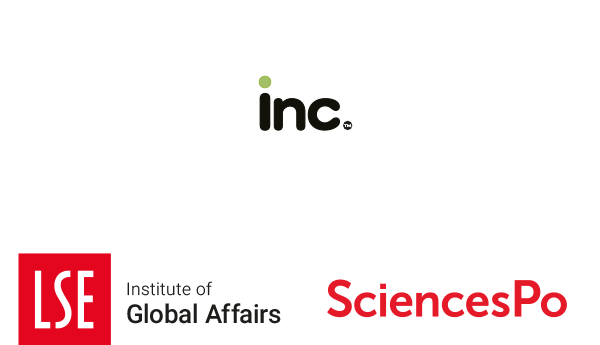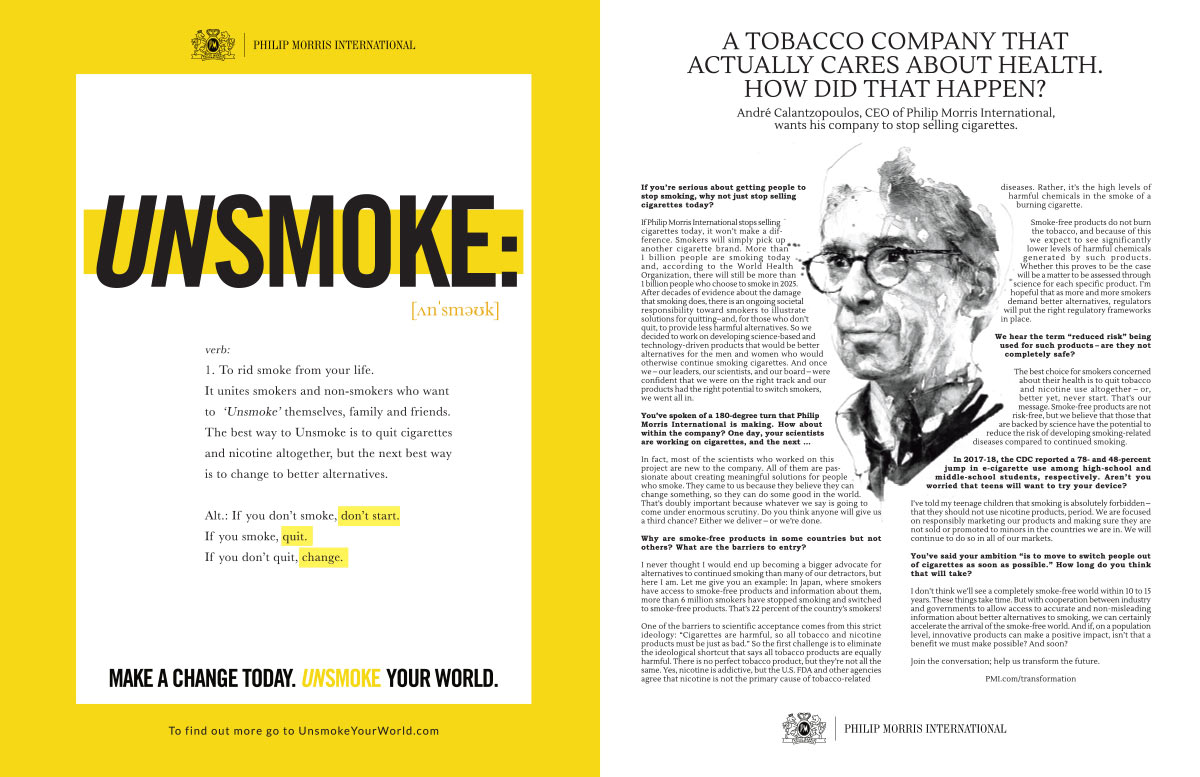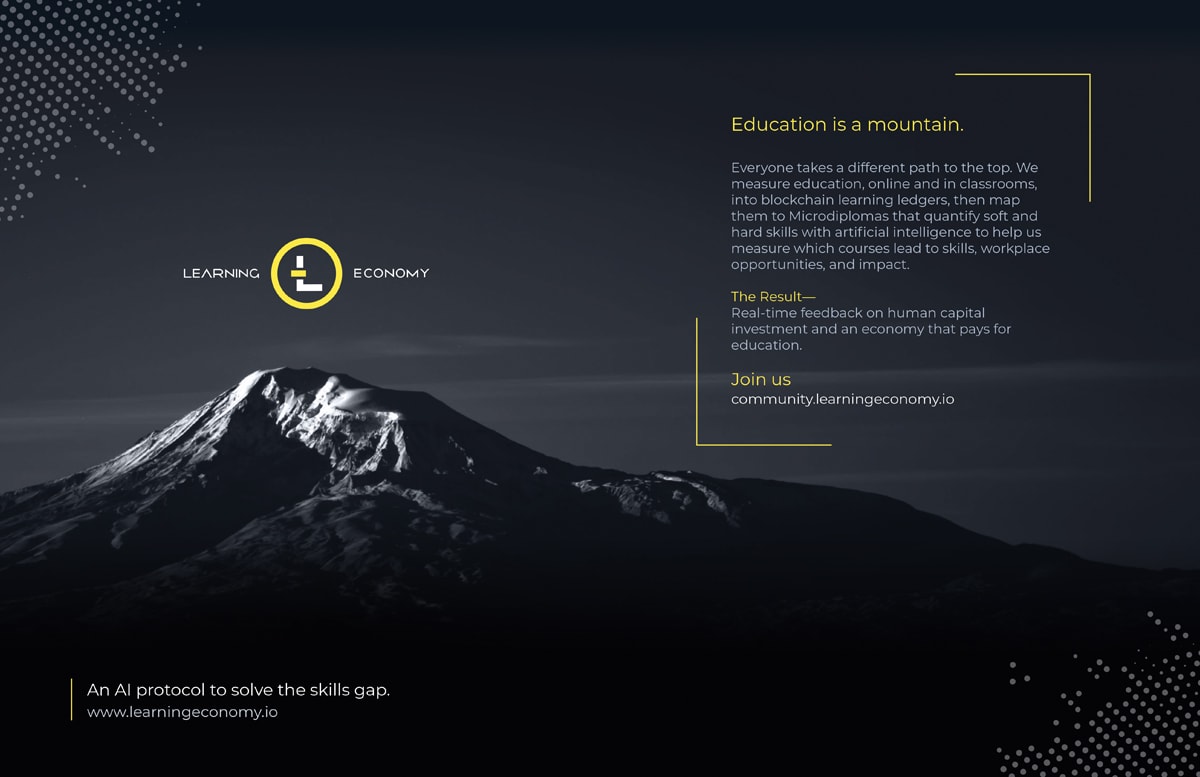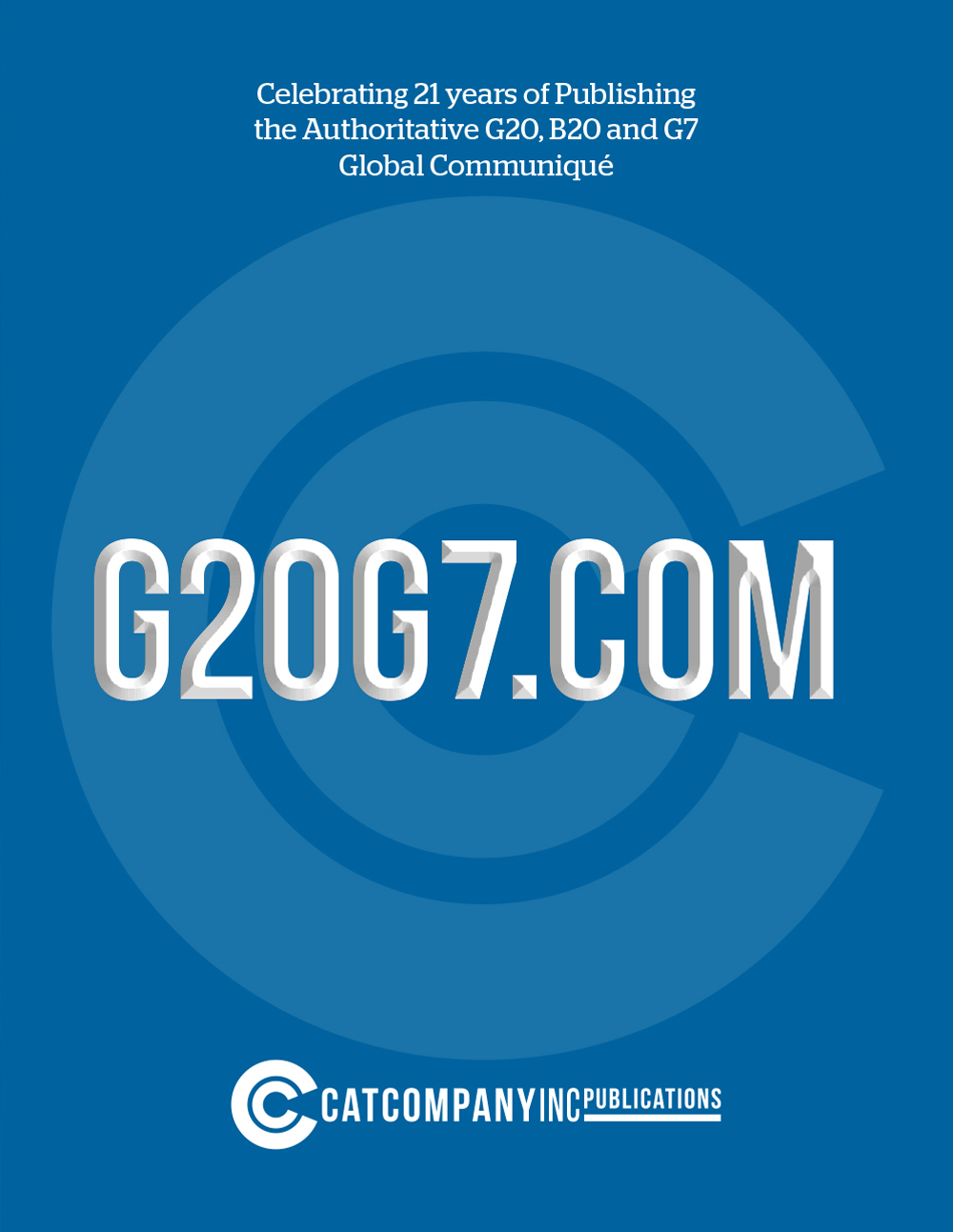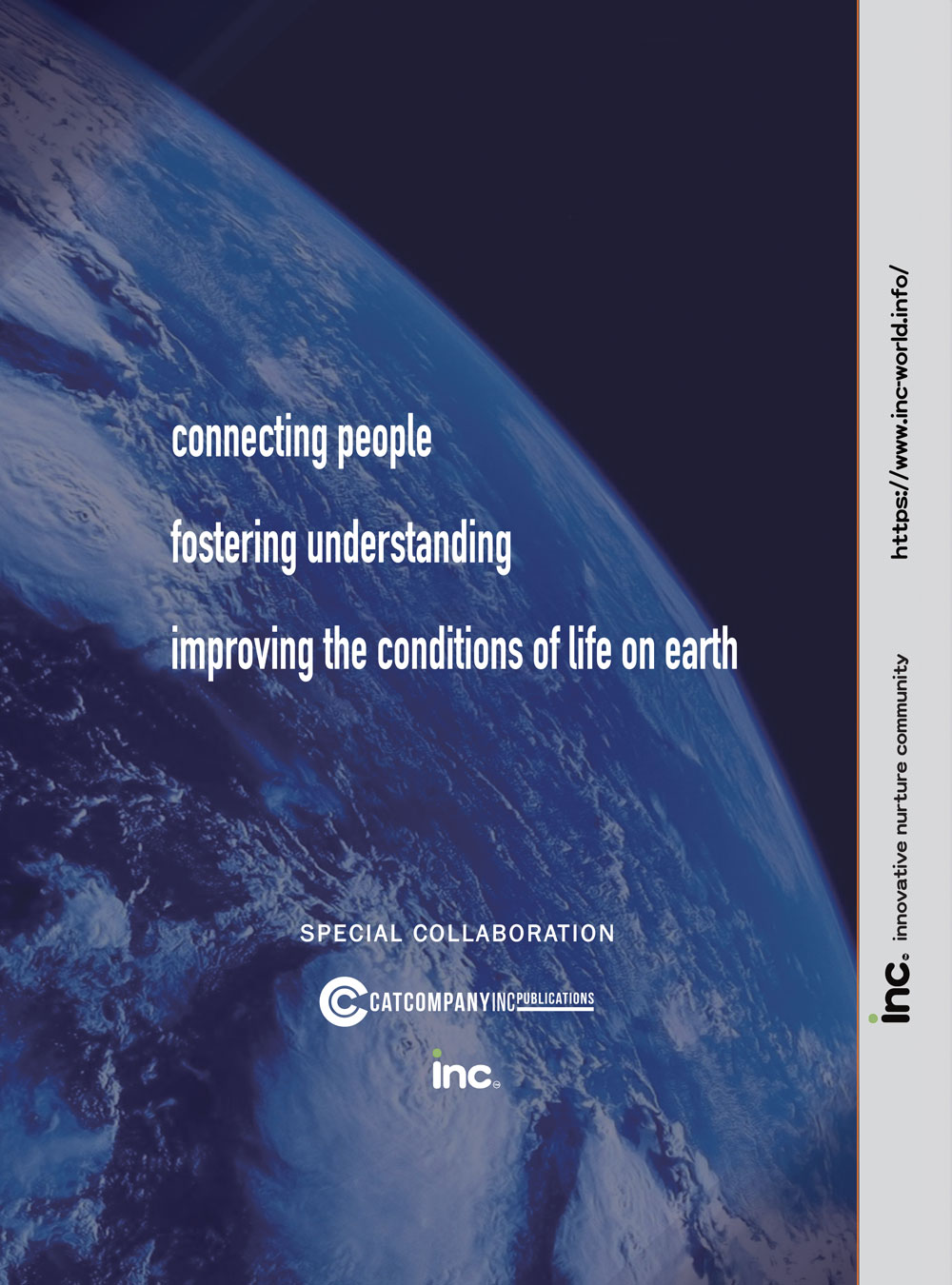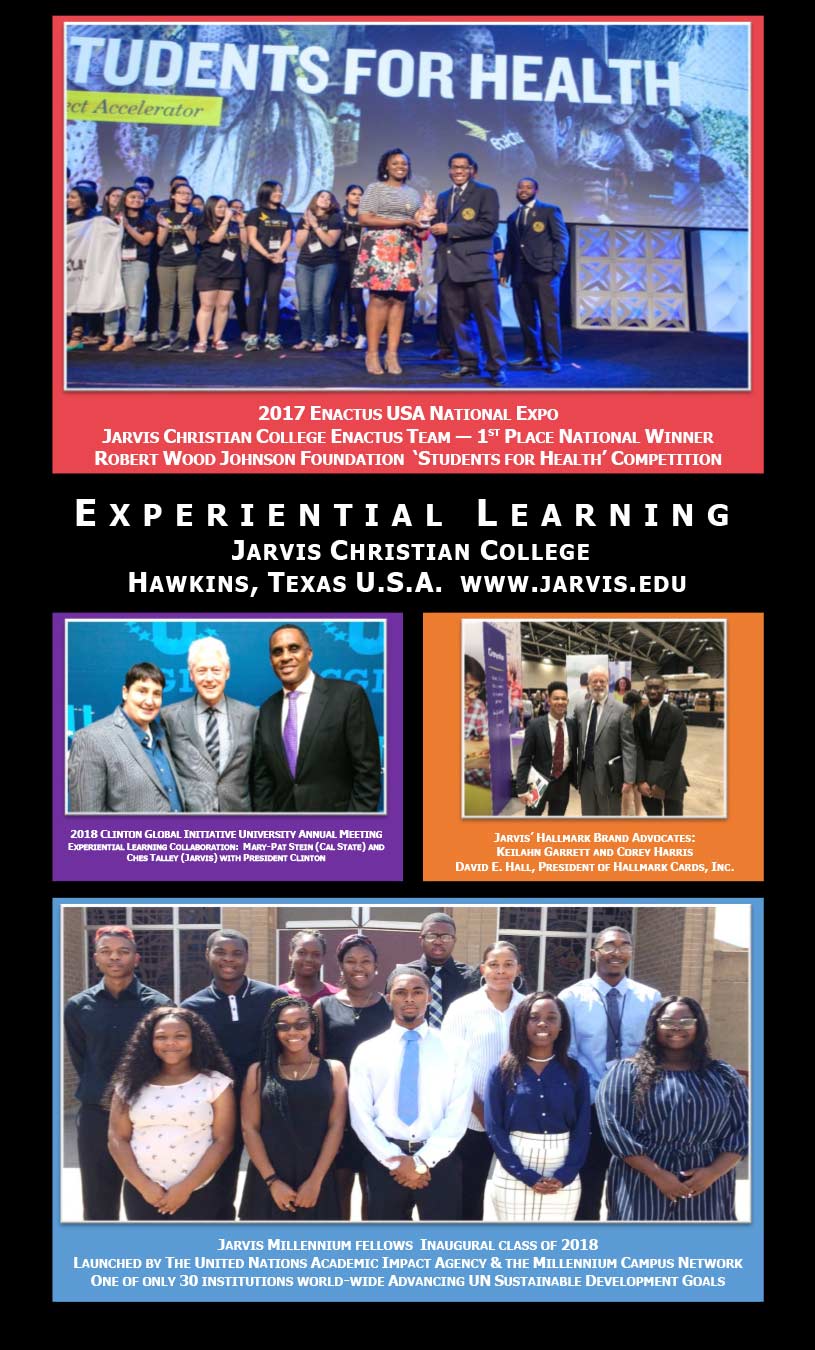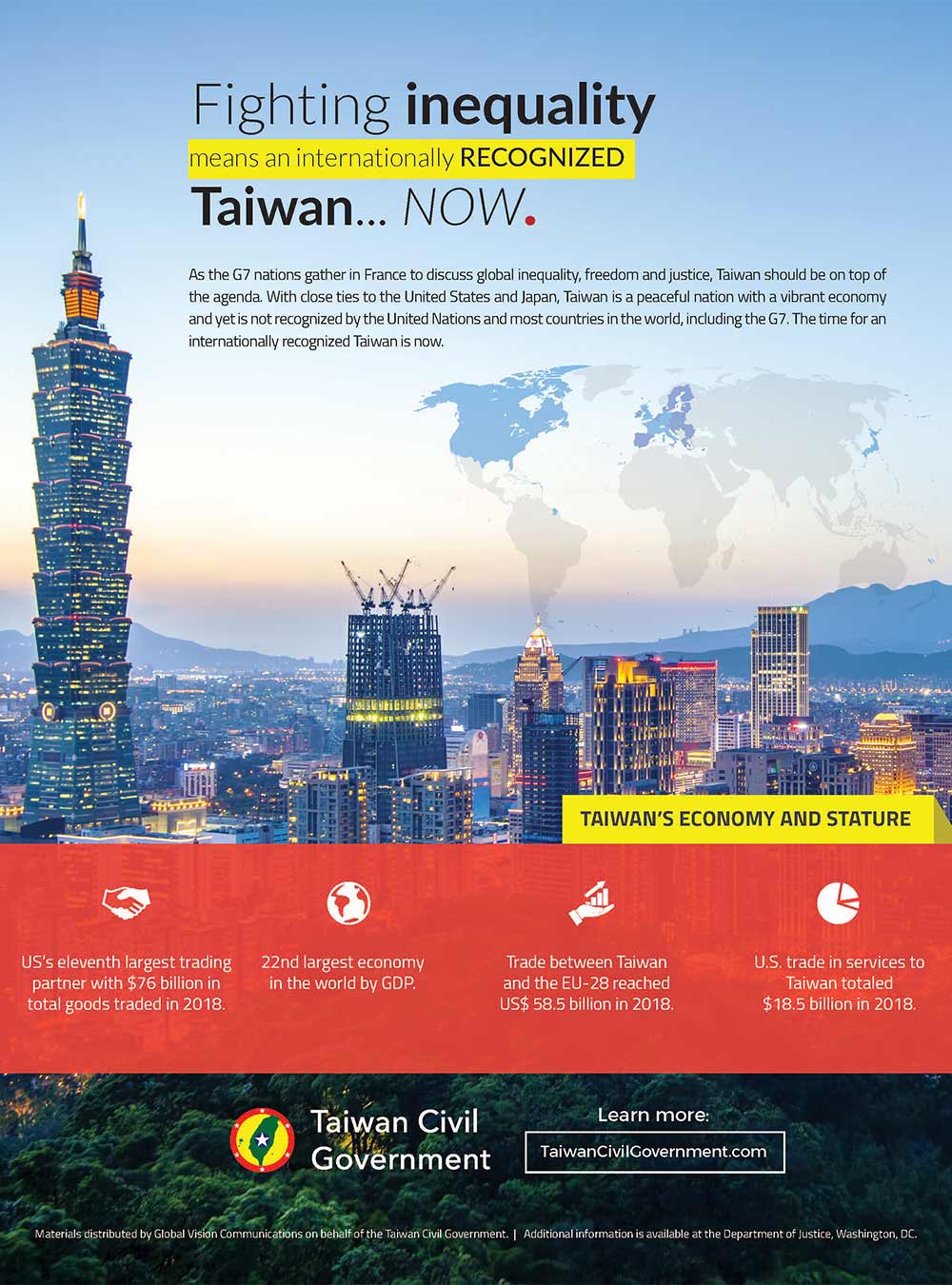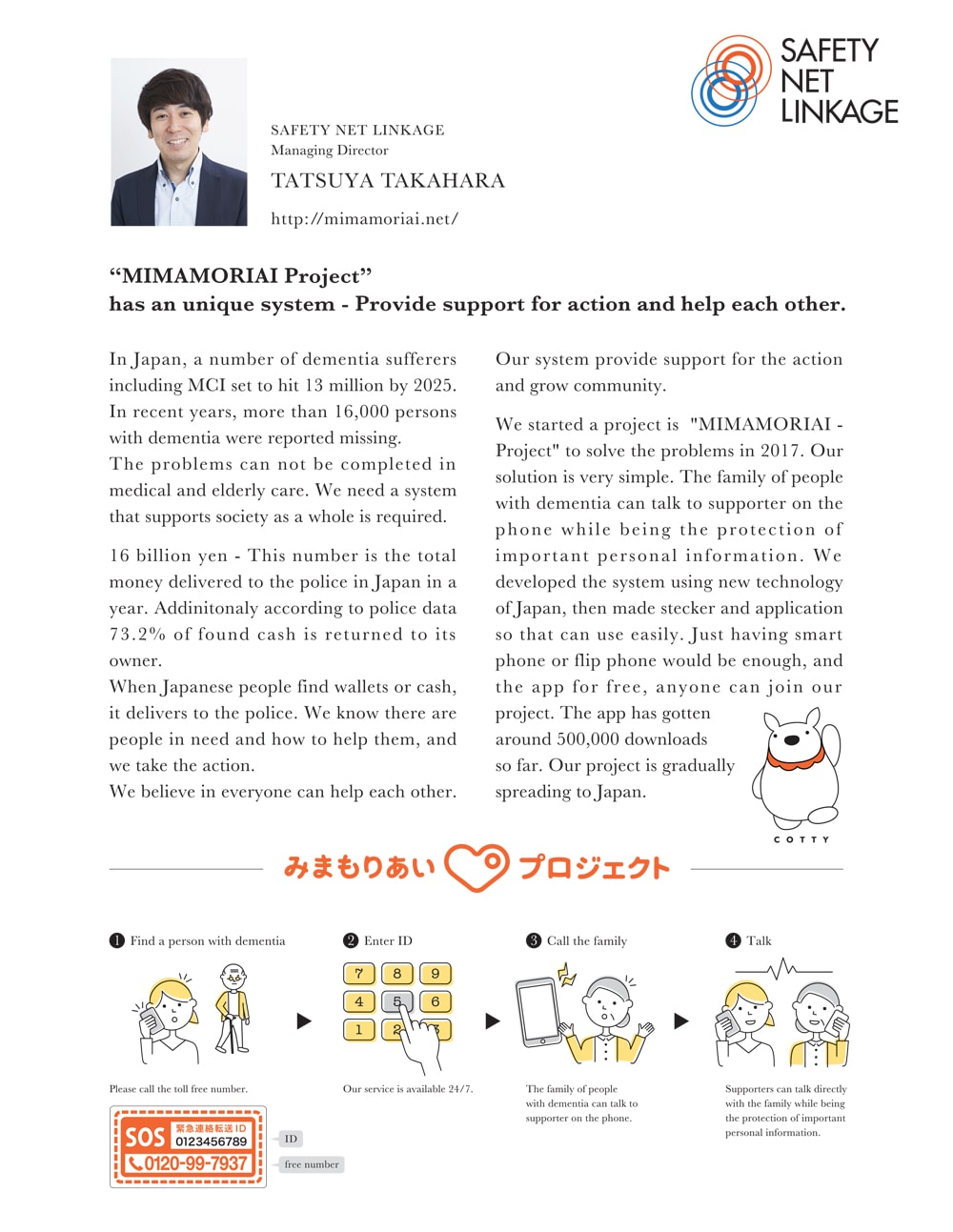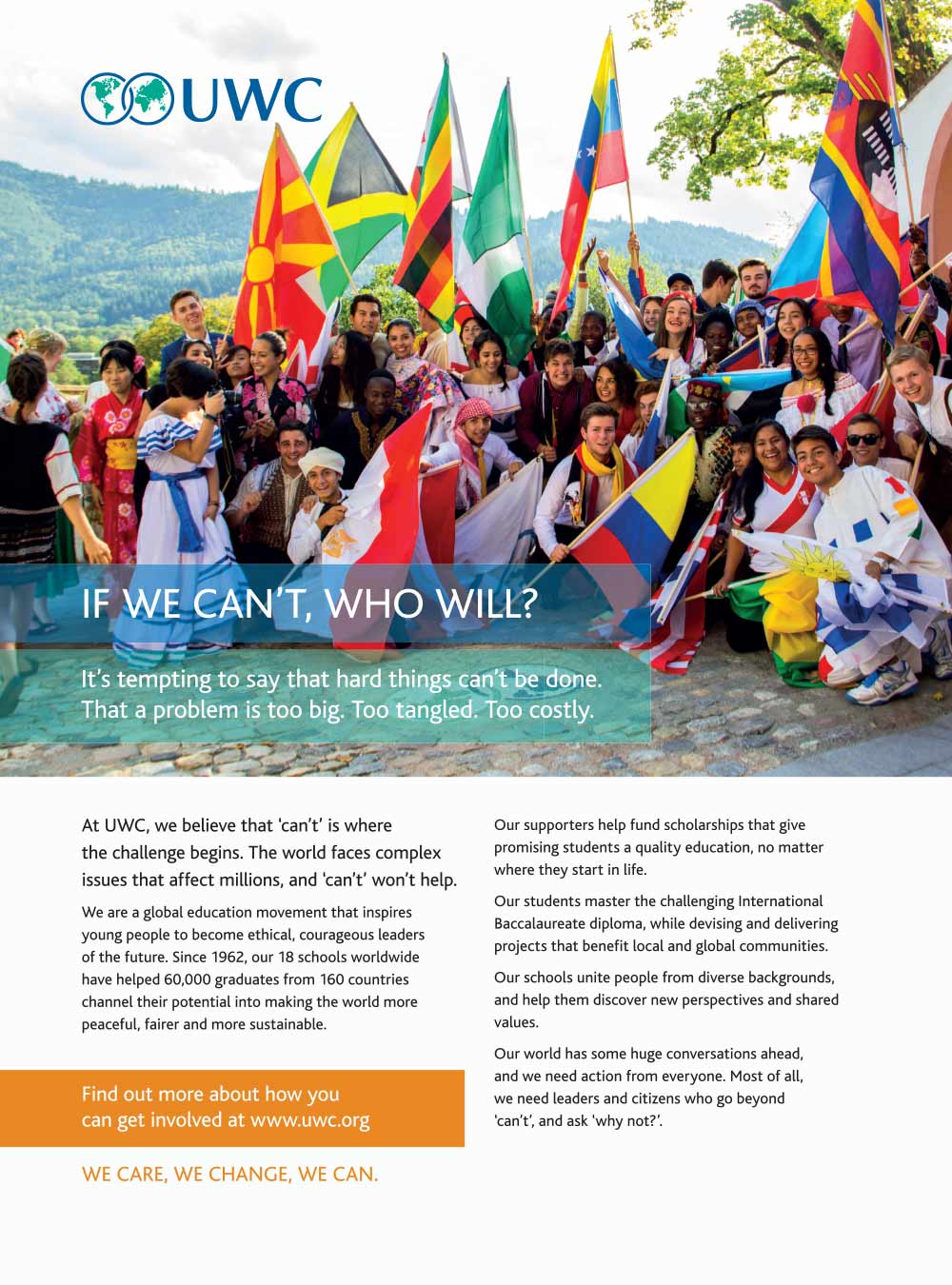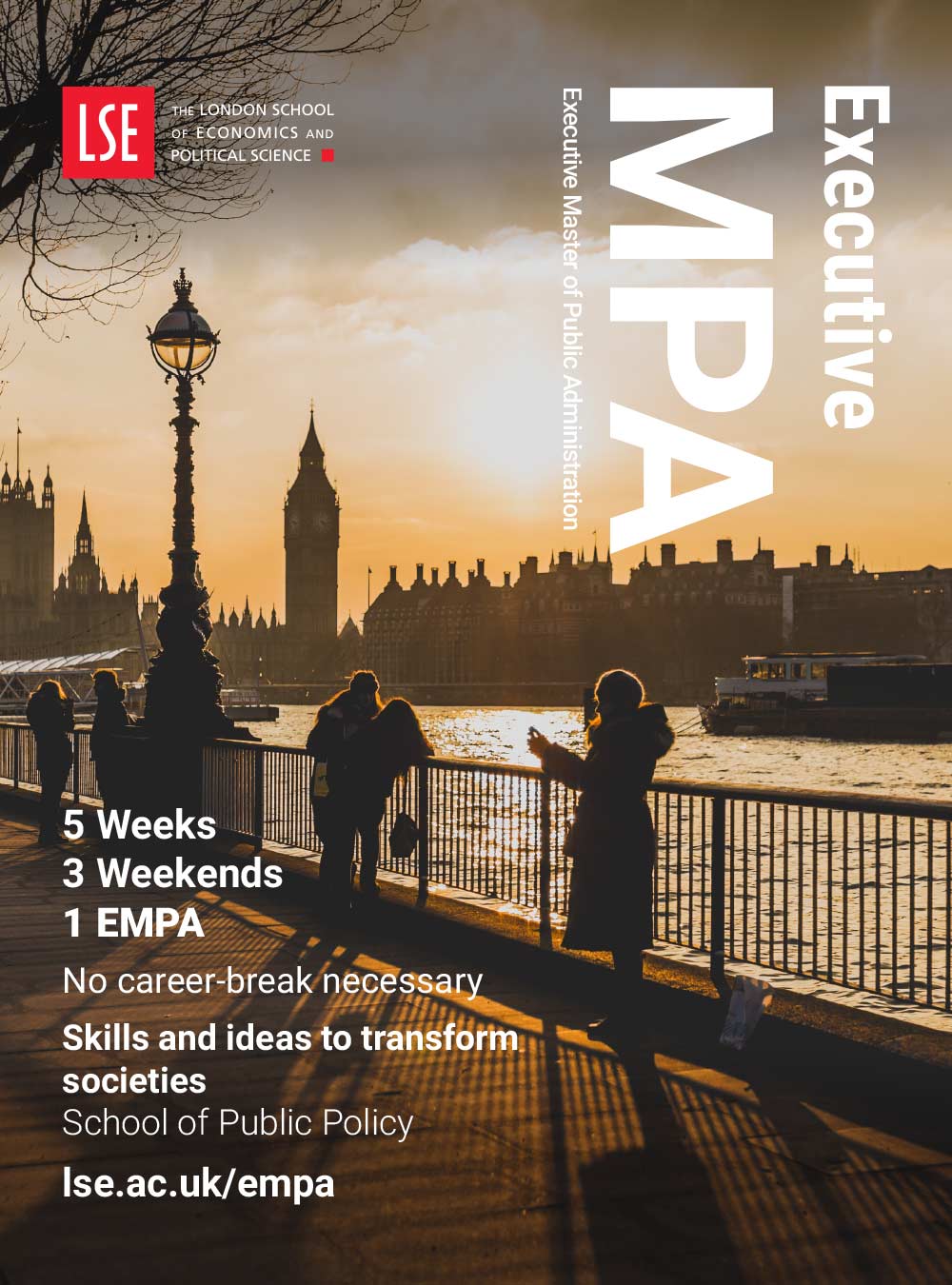contents

Address a Wide Range of Issues
WISE Explains How
Partners in Bionic
and Role-Playing Leadership
How Experiential Learning Empowers Generation Z
A Tale of Two Internets
Perpetuate Inequality
Fair Journalism Solutions
Concentration of Power
Deepfake Technology is Moving at an Alarming Speed
The Why and the How
The Role of Knowledge Infrastructures
Chris Atkins
Editor-in-Chief
Ana C. Rold
editors@diplomaticourier.org
Creative Director
Christian Gilliham
christian@cgcreate.co.uk
(+44) 7951 722265
EDITOR (LSE)
Erik Berglof
Communications Officer (LSE)
Carolina Stern
Piroska Nagy-Mohacsi
Executives
Ray Baker, Phil Cook, Anthony Leigh Jones, Delano Johnson & Tyrone Eastman
Special thanks
SciencesPO
Jerome Guilbert
Director of Communications
Charlotte Landes
Inc.
Franz Wldenberger
Michael Silva
Eriya Unten
Seiko Hashiba
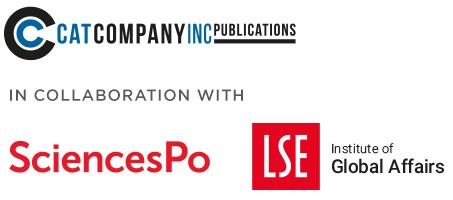
All rights reserved. The G7 Publication is a product of CAT Company. No part of this publication can be reproduced without written consent of the publisher Chris Atkins and the CAT Company. All trademarks that appear in this publication are the property of the respective owners. Any and all companies featured in this publication are contacted by CAT Company to provide advertising and/or services. Every effort has been made to ensure the accuracy of information in thispublication, however, CAT Company makes no warranties, express or implied in regards to the information, and disclaim all liability for any loss, damages, errors, or omissions.
editorial

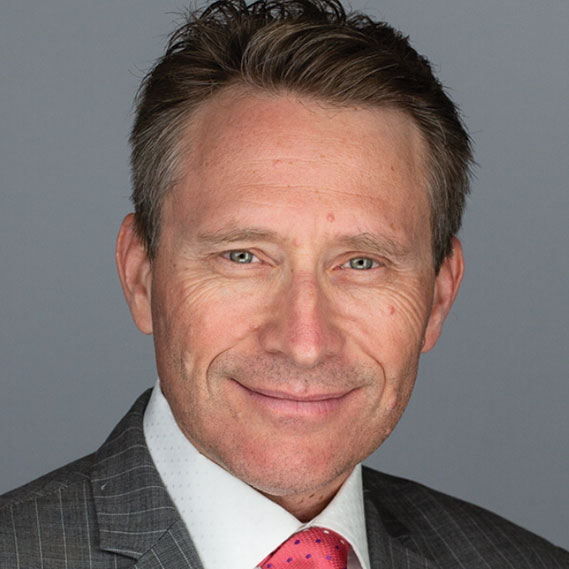
Publisher, ceo & Founder
Cat Company, Inc.
I am thrilled to welcome you to the 2019 G7 Summit publication. This edition is especially important for our company and global partners because it marks more than two decades since we produced the very first G7 Summit magazine. In 1997, our work earned us the trust of the host government and since then we have been honored to be the go-to publisher and consultant for host governments of the G7 and the G20 Summits for 22 years in a row. And for almost a quarter of a century our company’s own history and legacy are tied to these most important of global leadership gatherings.
As we reflect on the past two decades and more, I wish to express my heartfelt thanks to France’s G7 Host Committee and I commend you on making this summit paperless. I also want to take this opportunity to thank the London School of Economics as well as Science Po for their editorial partnership. It’s been a true privilege to work with these two world-class academic institutions and their leadership, and to benefit from the thought leadership of their faculty, students, and scholars.
Since 1997 our company has grown and expanded exponentially. Our portfolio of publications, which also includes the leading editions for the APEC CEO Summit, G7 Leaders’ Summit, G20 Leaders’ Summit and B20 Summit respectively, have been recognized globally.
Our company’s mission has been and continues to be to educate the global community on the most vital topics affecting our society and the agenda and leaders at the APEC, G7, G20 Leaders and G20 business summits. Through our award-winning publications, we have created an unprecedented opportunity for private sector leaders, IGO leaders, civil society, and other influencers to have a voice at these summits even when they don’t have a physical seat at the table.
We look forward to the G7 Leaders’ Summit and to France’s presidency this year and we look forward to working with you all again in the years to come.
Thank you for reading!

editorial

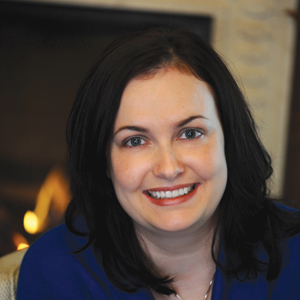
editor-in-chief
Cat Company, Inc.
It has been exactly eight years since we were in France for then G8 Summit in Deauville. At the time, peace and security, internet and green growth, and food security were among the hot topics of the leaders’ agenda. This year’s agenda is ever more ambitious: France wants to use its powerful platform to tackle inequality.
Fair Journalism solutions
cover story
Instead of expounding on the existential issues at hand, which have already been covered in volume and with diligent intention by many others, this instead intends to be a humble open letter about solutions. And while I want to explore what happened, where we find ourselves, the perils and the digital bricks that built the beast, I will only say one brief point on the matter—our future hangs in the balance of solving our crisis with civic discourse and media thoughtfulness, the spires of which will climb to a Brave New World or Big Brother in time, if we, humans on this blue marble, do not stand together in the gap in agreement for a different way.


Instead of expounding on the existential issues at hand, which have already been covered in volume and with diligent intention by many others, this instead intends to be a humble open letter about solutions. And while I want to explore what happened, where we find ourselves, the perils and the digital bricks that built the beast, I will only say one brief point on the matter—our future hangs in the balance of solving our crisis with civic discourse and media thoughtfulness, the spires of which will climb to a Brave New World or Big Brother in time, if we, humans on this blue marble, do not stand together in the gap in agreement for a different way.


I. Of Thoughtfulness
If we are to solve this great dilemma, first we must weigh the merits of thoughtfulness.
We are a society moving faster than any that’s come before it. Our young adults don’t recall a time before the cell phone, before the always on connected node in our pockets. For those of us that were alive before text messages and emails and Facebook, we have also been pulled into the breach. Information floods all of our senses, 24/7.
When this train of information left the tracks 20 years ago with AOL, it felt as though the Internet was going to balance the scales of power and corruption, to free information from |the shadows and bring transparency to the world. And then social networks let every person on the planet add information to the web, trillions of pieces of content were just the beginning. Everything is indexed by Google, a fitting name for a company with so much information it can’t be counted. And now, the data deluge has been weaponized—Russian hackers and bots, the “Cambridge Analyticas” and entertainment media corporations. We will never be able to find truth in this information haystack without thoughtfulness. Critical thinking, processing, researching, debating, and considering—thoughtfulness has many lost features to reclaim.
FUTURE EDUCATION
FEATURE
has picked a fight against inequality in its 2019 G7 Summit agenda. Increasing access to education is just one-way French President Emmanuel Macron imagines countries can improve equality of opportunity.
And this year’s G7 host country isn’t the only voice proposing education as a solution to global challenges. The World Innovation Summit for Education (WISE), a global organization that is exploring innovative ways to reimagine the future of education is releasing a number of new research reports. Bringing together decision makers, teachers, and education experts from around the world, WISE sees education as a key tool for addressing global issues like poverty and inequality.
Specifically, states around the world have already employed education as a tool for solving other national problems. For example, several countries have designed national education policies to attract the best students from across the globe in order to accommodate skills gaps and population decline. Additionally, the growing refugee crisis prompts countries to mold educational systems to meet a variety of language needs. In three 2019 reports, WISE explores the ways in which countries are making innovative education policy decisions to achieve their national goals.
ABAC
FEATURE
economy characterized by rapid change, an increasing degree of uncertainty as to the future of free trade and the labor market, and a number of opportunities associated with digitization, the need for international consensus building and understanding could not be more critical. It is crucial for every economy, large or small, to promote the benefits of free trade not only for economic reasons, but also to maintain permanent dialogue on common challenges and opportunities. The Asia Pacific Economic Cooperation forum (APEC) is one of the key institutions which enables this global collaboration to take place.
APEC is composed of 21 economies that collectively represent 40% of the world’s population and 60% of the world’s total GDP. Its core purpose is to facilitate the ideal environment for market players in the Asia Pacific region to reach consensus on principles related to free trade. Every year a new economy acts as the APEC host, and a series of events are held where different actors engage in dialogue.
tracit
Branded story
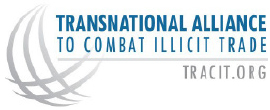
Geneva, 18 July 2019
Today, the Transnational Alliance to Combat Illicit Trade (TRACIT) and the United Nations Conference on Trade and Development (UNCTAD) co-hosted a meeting on the negative impact of illicit trade on the UN Sustainable Development Goals (SDGs).
The special UN dialogue exposed where and how progress on the SDGs is inhibited by illicit trade in some of the world’s most important economic sectors.
“From smuggling, counterfeiting and tax evasion, to the illegal sale or possession of goods, services, humans and wildlife, illicit trade is compromising the attainment of all 17 of the UN SDGs,” stated TRACIT Director-General Jeffrey Hardy. “It is crowding out legitimate economic activity, depriving governments of revenues for investment in vital public services, dislocating millions of legitimate jobs and causing irreversible damage to ecosystems and human lives.”
BIONIC HEALTHCARE
FEATURE
between artificial intelligence (AI) and human intelligence to transform lives is well underway. A bionic future has already arrived, one of three possible futures that Yuval Noah Harari, author of Sapiens: A brief history of humankind said that AI could bring. A genetic future was Harari’s second scenario where we tap into genetic engineering to sharpen our senses and our mental and physical performance and crack the mystery of how to live longer. The third future he described was a non-organic one where human beings move out of the picture altogether, replaced by robots whose capacities exceed the potential of the human brain. This is a confronting prospect for most of us, but a plausible one if you believe the human species will evolve further.
This is the belief of ‘transhumanists’ who optimistically embrace the ‘singularity’ (a moment in time when humans merge directly with robots) or believe, like Elon Musk, that we will just have to accept it. Not surprisingly, the average person on the street is alarmed by a non-organic future that appears to defeat the purpose of using AI in the first place i.e. to benefit humans and improve our health and lifestyles. It was the prospect of artificial general intelligence (AGI), a world where robots have the ability to take over a full range of human cognitive tasks that prompted the late Stephen Hawking to say: “AI could be the biggest event in the history of our civilisation…or the worst”. Realistically, we still have a choice, but now is the time for us to conscientiously plan a global strategy to deliver ‘AI for Good’. As Karl Schroeder (UNESCO Courier, July-Sept, 2018) has said, “Determining whether AI is a threat or a benefit is entirely a human responsibility”.
Plastic Pollution
FEATURE
More Action Is Needed if the G7 Members Want to Tackle Plastic Pollution
More Action Is Needed if the G7 Members Want to Tackle Plastic Pollution
five of the G7 member countries signed the G7 Ocean Plastics Charter. Countries signing to the agreement pledged to work towards building better recycling infrastructure and innovating technology to tackle environmental challenges. The charter additionally asked countries to work towards making all plastics recyclable by 2030, to reduce the consumption of single-use plastics, and to encourage the use of recycled plastics.
Signatures from the U.S. and Japan were notably absent from the charter, drawing worldwide scrutiny. Japan’s plastic consumption is currently the second highest in the world. In plastic bags alone, Japanese consumption is extremely high—the island nation uses 40 billion a year. And tucked into each of these 40 billion plastic bags are products likely to be surrounded in layers of plastic. Both Japanese hygiene standards and pride in customer service dictate that consumer goods are obsessively wrapped in plastics. At some grocery stores, even potatoes and carrots are individually wrapped in the polluting petrochemical product. And despite the country’s claim that 86% of their plastics are being recycled, 58% of Japan’s plastic waste is incinerated to produce heat and electricity, while 14% is exported to poorer Asian countries, its ultimate destination undocumented. The Washington Post reports that only 14% of the country’s plastic waste truly ends up being recycled in Japan.
LEADERSHIP
FEATURE
Experiential Learning takes concepts about academic education out of classrooms into workspaces where knowledge, skills, and competencies are practiced, creating new solutions to tomorrow’s problems, or innovating today’s solutions from yesterday’s successes. Learning by doing starts with Aristotle1: “for the things we have to learn before we can do them, we learn by doing them.”
HIGHER EDUCATION
BRANDED STORY
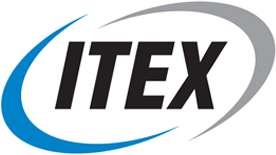

Carroll is the founder and president of The Coaching Educator, now in its 11th year of advising high school students in the U.S. and abroad about college admissions and financial aid.
The cost of higher education in the U.S. has risen at a furious rate in recent years, but Carroll said her company routinely finds tens of thousands of dollars for an individual client, and sometimes hundreds of thousands, while also helping students select and pursue admission to the most suitable institutions.
soft skills
FEATURE
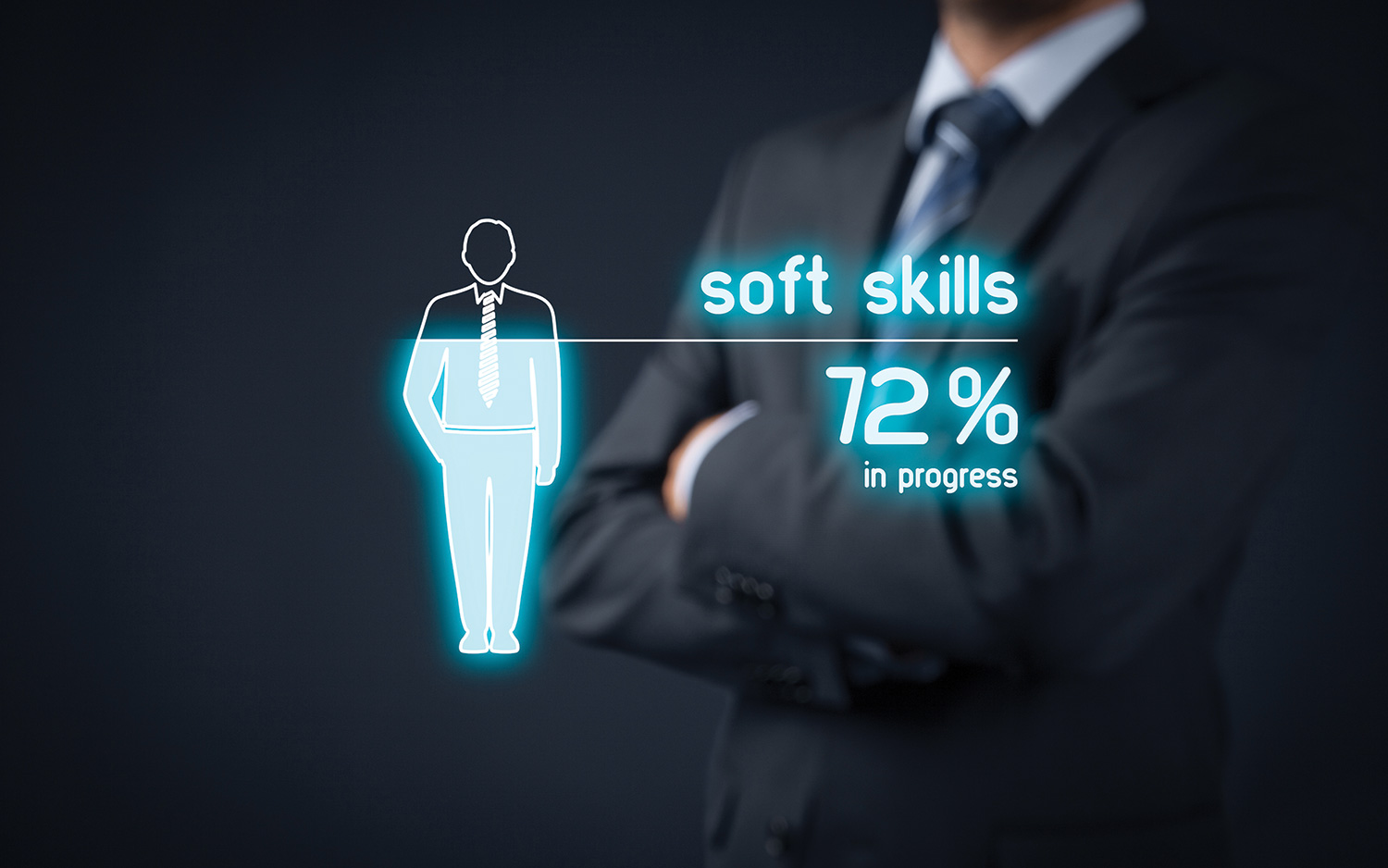
author of The Hard Truth about Soft Skills, has a point: soft skills get little respect.
From the International Labour Organization to the International Monetary Fund and beyond, there are no shortage of studies on the Future of Work and its impact on work, employment and on society. Quite often their focus is on how reskilling, upskilling and lifelong learning can mitigate the negative effects and challenges of the future of work. However, the rising importance of soft skills is completely absent from these assessments.
What are soft skills? How are they different to hard skills? References to these types of skills varies. Some refer to them as foundational skills, technical skills, human skills, and many others. Can this cause some confusion? Definitely. Despite these different terminologies though, let’s refer to them as soft skills and hard skills.
Early references to soft skills go back to the 1970s which included a definition in the US Army, where a soldier would need hard skills to read a map, and soft skills to make a decision after reading the map. Therefore, both hard skills and soft skills are needed to effectively execute a task or job.
GLOBAL
POLICY LAB

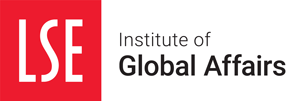

GLOBAL POLICY LAB

Inequality Matters to the G7
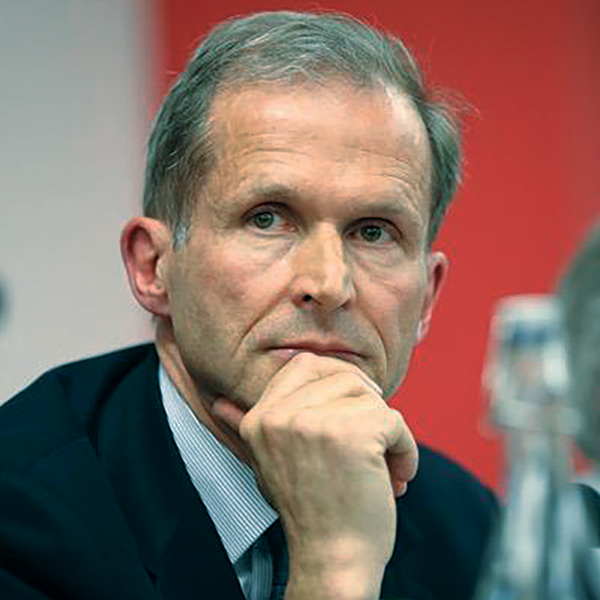
Inequality within countries has not traditionally made it to the tables of international cooperation. Rather, individual countries have to determine the extent to which unequal distribution of income and wealth should be tolerated, and within countries the topic was politically divisive. There has also been little agreement within the social sciences on the drivers of inequality and the impact it has on economic growth and development but also on general wellbeing.
Rising populism in both advanced and emerging economies has now catapulted inequality onto the agendas of the G7 and the G20. There is a growing consensus that we need to better understand the distributional dimension of economic policies and how inequality affects the effectiveness of different policies. We are only now beginning to seriously consider how inequality and perceptions of inequality affect people’s sense of wellbeing.
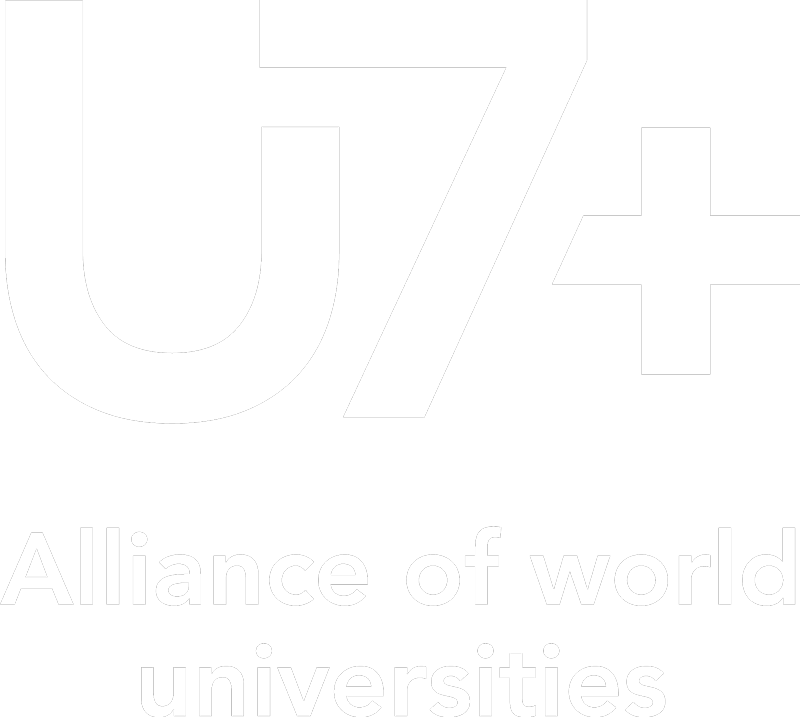
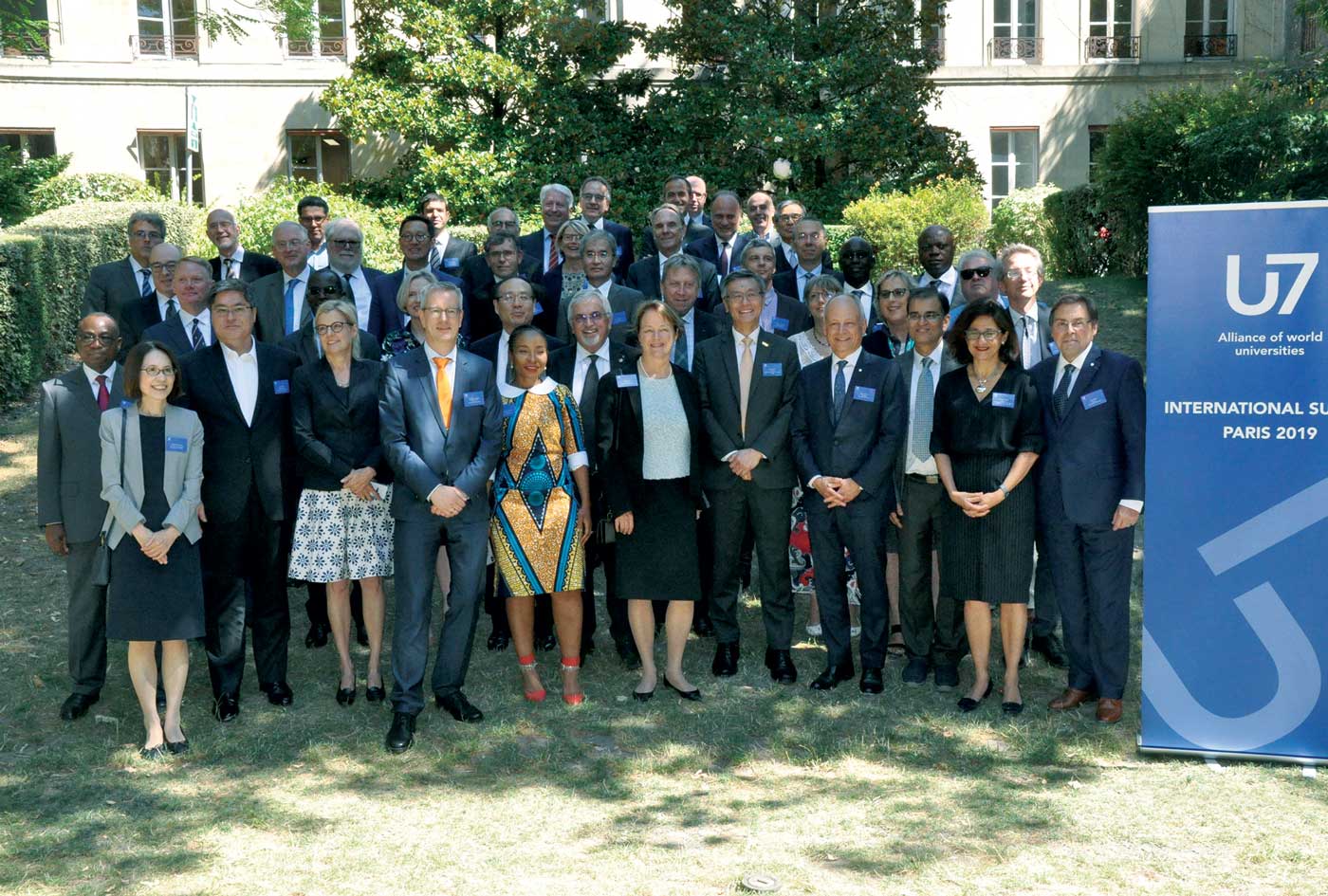
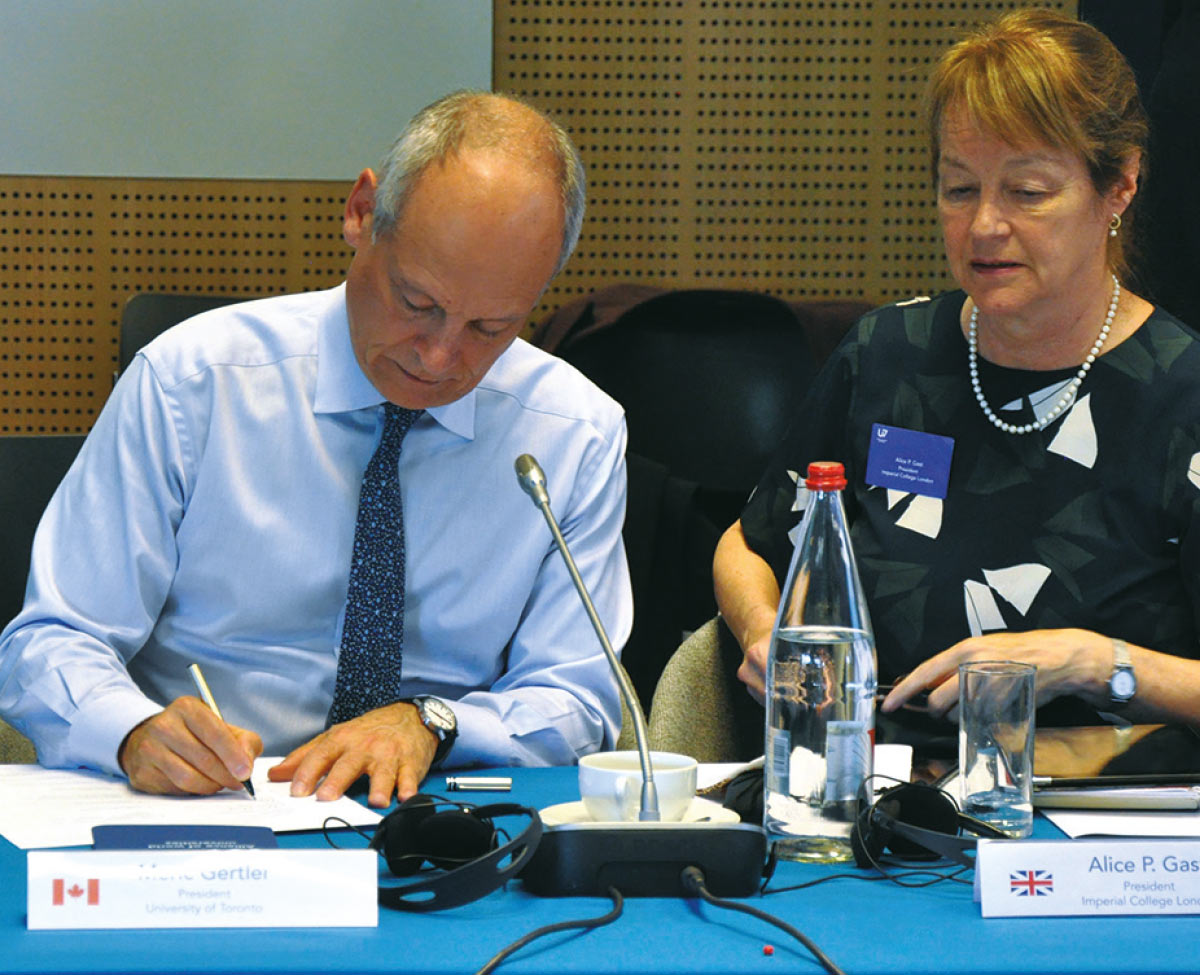
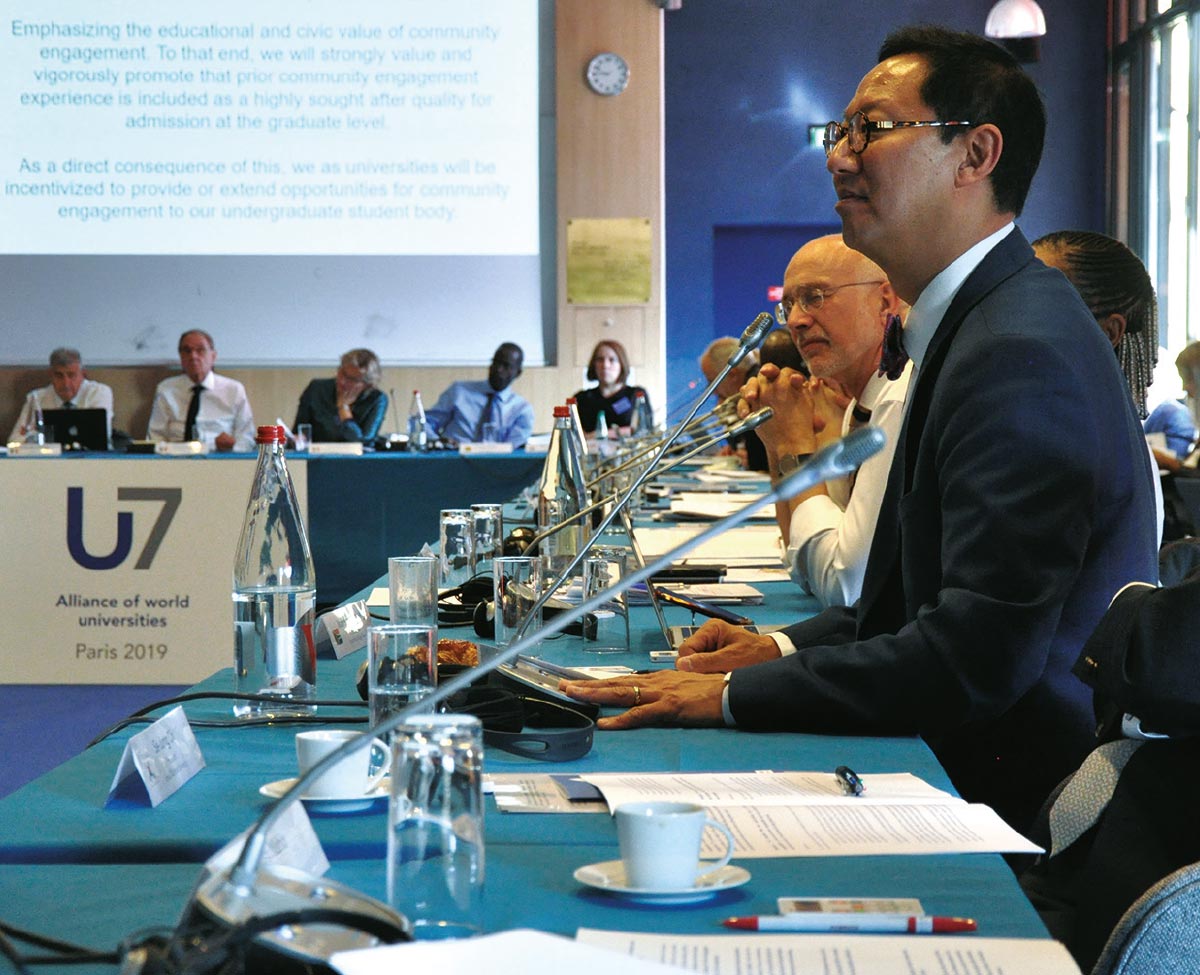

In the scope of the G7, there are a number of active engagement groups dedicated to providing specific input and recommendations within their relevant fields: Youth7, Women7, Business, and several more. However, until the U7+, never has such an international cross-section of universities representing a total of 2 million students and some of the highest-end research worldwide come together as a collective force for action on this multilateral scale.
GLOBAL POLICY LAB

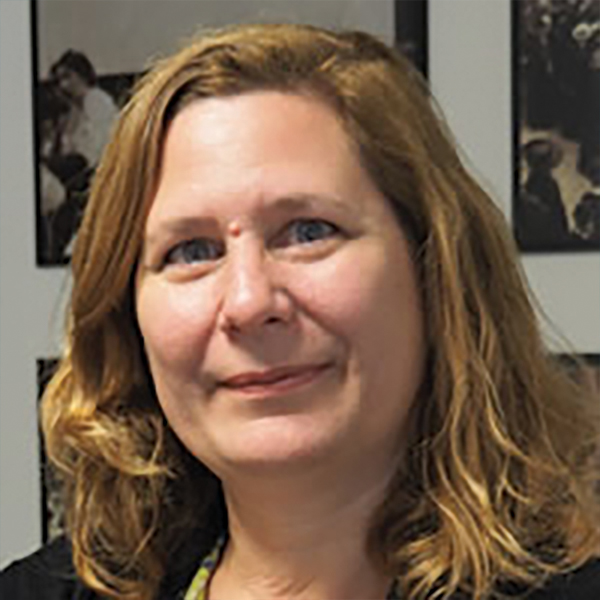
The recent focus on inequality by a number of important international bodies and organisations is a welcome development for those who have been concerned about the deep and profound divisions that exist between people around the world. However, although our knowledge and understanding of inequality has grown, there continues to be too narrow a focus.
We now know a fair amount about inequalities in income, earnings, wealth, health, life expectancy, and education. But these measures only provide a partial picture of inequality. It is true that inequalities in the financial resources that people have available are important, as are inequalities in life expectancy. Nevertheless, there is a concern that the choice of outcomes which inequality studies have focused on is somewhat arbitrary, and often has more to do with the availability of data than theoretical consideration. We argue that first, it is important to be clear about what aspects of peoples’ lives we should be concerned about.
When we assess the outcomes of people’s lives we think about the quality of their lives and their overall well-being. Attempts have been made to estimate holistic measures of well-being but from a quality of life perspective, the most common approaches are problematic. This is because, on the one hand, measures based on economic outcomes fail to consider differences in need between individuals or differences in individuals’ ability to convert these resources into valuable things they can do or be (such as going on holiday, being well-nourished, feeling physically secure, or having friends).
GLOBAL POLICY LAB

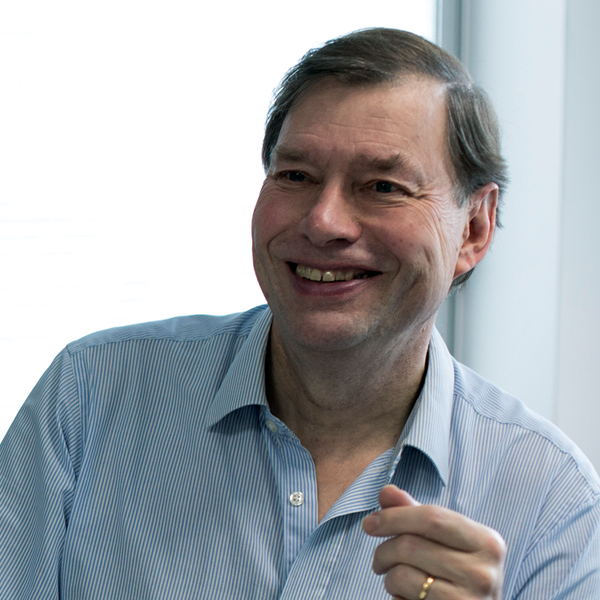
While some people see reducing inequality as important in itself, for others eradicating poverty is what matters, and inequality in itself is unimportant.
But can one, in fact, be concerned about poverty but indifferent to inequality? As a corollary, does tackling poverty also require policies to reduce inequality?
For some in the philosophical debate, inequality is in fact the prime concern, with poverty a consequence. But for others, poverty is the starting point and inequality of concern just for instrumental reasons, if it leads to or exacerbates poverty.
For many, though, the concerns are not exclusive. Both are relevant for human deprivation and violate human dignity. They can also reinforce each other. A pluralist approach suggests one can prioritise poverty while also allowing that inequality matters, both in itself and instrumentally.
GLOBAL POLICY LAB

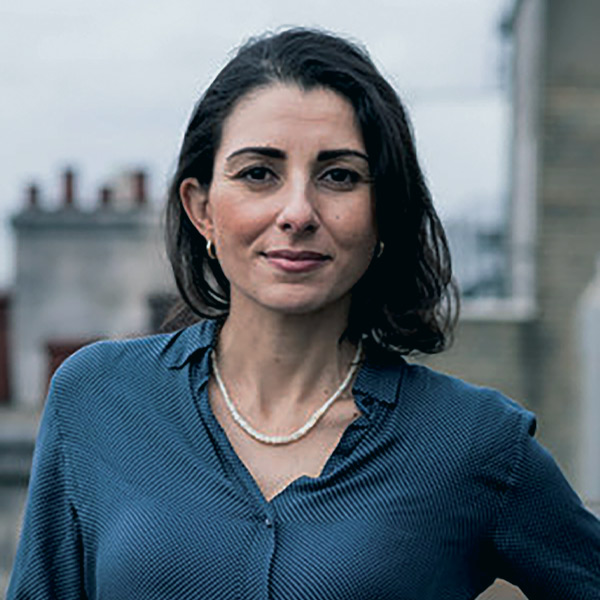
Making capitalism fairer and more sustainable.1 With this bold statement, the G7 is embarking on a highly relevant agenda, driven by the 2019 French Presidency’s focus on tackling inequalities. But how will the leaders of the world’s largest economies actually deliver this ambitious goal? To what extent can capitalism offer this broader vision: will it be able to generate bold and imaginative responses, and how will it credibly pursue them, given the dispossession and debt it has brought to the vast majority of the world’s citizens?
For the first time in the G7’s history, the table at its annual meeting has expanded to include a few non-G7 countries and international organisations. This act recognises the wider leadership context required to achieve change within the key focus areas of the G7 programme: addressing inequalities between countries and within advanced economies, climate breakdown, gender inequities, and technological change.
Despite the scale of these challenges, there are grounds for hope in the range of significant proposals already on the table for G7 leaders to consider. The most critical and effective actions involve instituting fiscal policies that favour social spending and progressive taxation, in tandem with curtailing tax havens and overhauling corporate taxation.
GLOBAL POLICY LAB

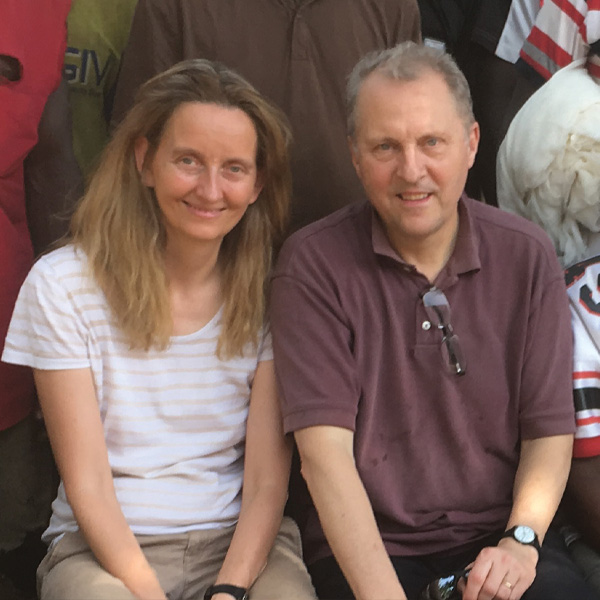
Ebola responses highlight chronic problems with public authorities and multiple inequalities in health assessments and responses. Our team’s research has explored the implications (http://www.lse.ac.uk/africa/centre-for-public-authority-and-international-development/Public-authority-and-Ebola). With respect to the 2014/15 epidemic in West Africa, the problems were extreme, and apparent to anyone who cared to notice. A basic statistic underlines the point: the estimated amount spent on Ebola was 150% more than the annual government budgets of the three most affected countries combined. This was primarily because West Africa is situated relatively close to Europe, and the affected populations have close connections with both Europe and the United States. There were serious concerns about infection spreading to rich countries. Containment was the priority, and protection of international staff shaped events on the ground. Indeed, unprecedented steps were taken. Unlike previous Ebola epidemics, the West African epidemic was categorised by the UN Security Council as ‘a threat to international peace and security’.
In Sierra Leone, an expensive British operation involved deploying hundreds of military medics and logistical personnel. Many were based offshore on HMS Argos, and others in protected locations near the site of a treatment centre they helped construct and run in Kerrytown, at the edge of Freetown. The centre took so long to complete that the worst of the epidemic was over by the time it was effective. Noteworthy, too, is that care was initially provided for infected expatriates in a separate space to Sierra Leonean citizens. However, the numbers coming forward were small. Rumours abounded, including stories about soldiers collecting body parts. The situation was not helped by the fact that infected expatriates were, in practice, evacuated to their home countries.

Dean, School of Public Affairs, Sciences Po
Full Professor, Department of Economics

The votes for antisystem parties is fueled first and foremost by a sharp deterioration of citizens’ trust in their institutions, experts and elites over the last three decades. According to the World Values Survey, the share of people who do not trust Parliament has increased from 47% to 77% in the United States, from 37% to 64% in France, and from 60% to 77% in Britain since the early 80s.
The erosion of trust in institutions seems closely linked to the deterioration of the living conditions of the middle and lower classes, hit by economic insecurity and rising inequalities, especially since the 2008 economic crisis. The financial crisis provoked an immense resentment towards the traditional parties, considered to be incapable of protecting the popular classes from the disturbances of contemporary capitalism. Beyond the financial crisis, the failure of governments and institutions to protect people from more structural risks such as the expansion of inequalities, globalization or the digital transition, has fueled distrust. As an illustration, in a series of articles analyzing the “China Shock”, David Autor, and his co-authors, highlight the effects of globalization on the destruction of employment in American industrial strongholds, leading to a strong resentment towards institutions and a political radicalization. The digital revolution and rising inequality have had the same effect in Europe and the United States.

Denis Fougère, Agnès van Zanten,
Research Directors, Observatoire Sociologique du Changement (CNRS), Sciences Po

This is an optical illusion. Inequalities become visible in Higher Education, but they are generated much earlier. Secondary education is everywhere tracked into academic and vocational curricula. These often take the form of school tracks in Continental Europe, while in Anglo-Saxon and Scandinavian countries the model of subject choice prevails. But the pattern is everywhere the same: academic curricula offer much better training for Higher Education, thus enhancing the chances of enrollment in (and completion of) tertiary programmes, and into the best ones. Upper class, native students are hugely overrepresented in classes offering these curricula.
To be sure, equalization measures at the end of secondary education are important, particularly outreach interventions combining academic support with the provision of information on Higher Education. But the problem is that they arrive too late, when students differ already too much in their skills and aspirations. Late interventions can have effects at the margins, but we have now increasing evidence that earlier counseling programmes targeting curricular choice in secondary education are more effective. There are just too many students with good school performances from disadvantaged families that fail to make ambitious choices in secondary and tertiary education. They, and their parents, tend to overestimate their risks of failure in the academic path. They thus adapt their ambitions downwards and end up selecting shorter, applied programmes. Light-touch counseling interventions can correct their misperceptions and sustain their aspirations, before it’s too late.

Dean, School of International Affairs, Sciences Po
President, Association of Professional Schools of International Affairs (APSIA)

Access to education has always been one of the main criteria for assessing levels of inequality and inclusiveness in a community. Numerous studies have focused on the topic in the past. It is interesting to highlight the impact that increased global mobility has had and is having in this field.
Due to major changes over the last two decades the resulting growth in mobility opportunities has profoundly altered the world of education, both in secondary and above all in university education. Before the mobility revolution that began years ago and which has accelerated since the beginning of the century, the option of studying abroad was limited to a small number of people. There were few exceptions to the widespread norm of cycles of studies carried out in the local area or at the furthest elsewhere within the same country.
The times we are living in have radically changed this pattern. Nowadays there is a global education market that is no longer exclusively available to small minorities or limited to individual countries. A subset of educational supply and demand has been formed on a global scale and is rapidly and continuously growing. It travels the planet breaking down the limits and barriers of the past and even provoking competition between distant and different locations. Something which was once limited to only a few people, today extends on a global scale like never before.

Full Professor, Department of Economics, Sciences Po

The multilateral trading system is now under attack by the country which has been its main inspirer, the United States. The current view of the US administration of trade as a zero sum game where some countries (with trade surpluses) gain at the expense of others (with trade deficits) marks a stark departure from previous administrations as well as from the consensus of economists. It is therefore important to have in mind the losses that a trade war would entail. A simulation of a trade war (see Jean, Martin and Sapir, 2018 and Vicard 2018) shows large permanent losses (around 3% to 4% of GDP for the EU, US and China and much larger for smaller countries) that are similar to the estimated permanent effect of the Great Recession. Benefits of trade (and losses of a trade war) should not be overestimated (there are also decreasing returns to trade liberalization) but they do exist.
This is not to say that benefits of trade liberalisation are evenly distributed. In fact, it has been known for a long time that international trade can not only increase inequalities but also create losers (be they individuals or regions inside countries).

Full Professor, Political Science, Sciences Po (CEE, MaxPo & LIEPP)

Tax cooperation seems to be more difficult to achieve through multilateralism than any other economic issue, despite growing consensus about the detrimental effects of corporate tax competition for both market integration and economic inequalities. Repeated attempts to harmonize corporate taxation have gained momentum since the financial crisis, with important proposals made by the OECD and the European Union. Yet failure to implement or even reach agreement on these proposals shows the need for leadership of the G7 in order to address the concerns of those countries that stand to lose most from corporate tax harmonization.
Detrimental effects
In the past, proponents of tax competition have underlined its positive effects on government efficiency, which were supposed to improve the provision of public services to respond to fleeting income. This argument generally does not hold for corporate taxation, since companies are much more mobile than citizens. As a result, we can observe a “race to the bottom” of corporate tax rates. Public choices are distorted in favor of the most mobile companies, with an increasingly important part of the tax burden born by the least mobile parts of a country’s population.

Professeur d’économie et Doyen de l’École d’affaires publiques, Sciences Po

L’essor des forces antisystèmes et populistes témoigne d’une profonde crise de confiance des citoyens à l’égard de leurs institutions et de leurs concitoyens, comme nous le montrons dans notre nouveau livre Les origines du populisme (avec D. Cohen, E. Beasley, M. Foucault).
Le vote pour les partis antisystèmes est alimenté avant tout par une nette détérioration de la confiance des citoyens envers leurs institutions, les experts et les élites sur les trois dernières décennies. Selon le World Values Survey, la part des individus qui n’a pas confiance en son Parlement est passée de 47% à 77% aux États-Unis, de 37% à 64% en France, et de 60% à 77% au Royaume-Uni depuis le début des années 80.


Denis Fougère, Agnès van Zanten, Directeurs de recherche au CNRS, Sciences Po, OSC (Observatoire Sociologique du Changement)

Dans les sociétés d’éducation de masse, la scolarisation dans le primaire et le secondaire est quasiment universelle. Les inégalités sociales sont par conséquent plus visibles lors de la transition vers l’enseignement supérieur, ainsi que dans la durée et la qualité des programmes de troisième cycle choisis par des étudiants d’origines sociales différentes. Dès lors, il semble naturel de promouvoir l’égalité dans l’éducation en se concentrant sur les barrières économiques et culturelles auxquelles sont confrontés les titulaires du baccalauréat.
Or il s’agit là d’une illusion d’optique. Les inégalités deviennent visibles dans l’enseignement supérieur, mais elles sont créées bien plus tôt. Partout, l’enseignement secondaire se divise entre filières générales et professionnelles. En Europe continentale, cette division correspond à des différences de profil entre les établissements, tandis que dans les pays anglo-saxons et scandinaves, elle est apparente dans des différences entre les programmes d’enseignement d’un même type d’établissement. Mais la configuration est la même partout : l’enseignement général offre une bien meilleure formation pour accéder à l’enseignement supérieur, favorisant ainsi les chances d’admission (et de réussite) dans les meilleurs programmes d’enseignement de troisième cycle. Les étudiants des classes supérieures et d’origine nationale sont largement surreprésentés dans les filières générales.
Certes, les mesures visant à favoriser l’égalité à l’issue du cycle d’enseignement secondaire sont importantes, en particulier l’accompagnement qui conjugue soutien pédagogique et des informations relatives à l’enseignement supérieur. Mais le problème réside dans le fait que ces mesures arrivent trop tard, au moment où les aptitudes et les aspirations des étudiants diffèrent déjà de façon très significative. Les interventions tardives peuvent avoir des effets à la marge, mais il est désormais de plus en plus clair que les programmes d’orientation précoces aidant l’élève à choisir son cursus dans l’enseignement secondaire sont plus efficaces. De trop nombreux étudiants ayant de bons résultats scolaires et issus de familles défavorisées échouent à faire des choix ambitieux en deuxième et troisième cycles. Ces étudiants, ainsi que leurs parents, tendent à surestimer les risques d’échec scolaire. Ils limitent donc leurs ambitions et finissent par choisir des cursus plus courts et plus appliqués. Les actions d’orientation par petites touches peuvent corriger leur perception et soutenir leurs aspirations avant qu’il ne soit trop tard.

Doyen de l’École d’Affaires Internationales, Sciences Po (PSIA)
Président de l’APSIA (Association of Professional Schools of International Affairs)

L’accès à l’éducation a toujours été l’un des principaux critères d’évaluation des niveaux d’inégalité et d’inclusion dans une communauté. De nombreuses études ont porté sur le sujet par le passé. Il est intéressant de souligner l’impact que la mobilité internationale croissante a eue et continue d’avoir dans ce domaine.
En raison d’importantes évolutions au cours des deux dernières décennies, l’accroissement des mobilités a profondément altéré le monde de l’éducation, dans le secondaire, et surtout dans l’enseignement universitaire. Avant la révolution de la mobilité, qui a débuté il y a des années et s’est accélérée depuis le début du siècle, la possibilité de voyager à l‘étranger était limitée à un petit nombre. Il y avait alors quelques exceptions à la norme généralisée de cycles d’études effectués au niveau local, ou au plus loin, autre part à l’intérieur du même pays. L’époque que nous vivons a radicalement modifié cette configuration. De nos jours, il existe un marché mondial de l’éducation qui n’est plus exclusivement réservé à une petite minorité, ni réservée à certains pays. Offfre et demande d’éducation se sont développées à une l’échelle mondiale, et croissent de façon rapide et continue. Le marché global éducatif parcourt la planète, franchit les limites et fait tomber les barrières du passé, engendre même une concurrence entre des zones différentes et éloignées les unes des autres. Ce qui était autrefois réservé à quelques personnes seulement s’étend aujourd’hui au monde entier comme jamais auparavant.

Département d’économie, Sciences Po

Le système commercial multilatéral est aujourd’hui menacé par le pays qui fut son principal inspirateur, les États-Unis. La position actuelle de l’administration américaine sur les échanges commerciaux – vus comme un jeu à somme nulle au sein duquel certains pays (avec un excédent commercial) gagnent au détriment des autres (déficitaires) – marque une rupture flagrante vis-à-vis des gouvernements précédents et du consensus des économistes. C’est pourquoi il est essentiel de garder à l’esprit les coûts qu’engendrerait une guerre commerciale. La simulation d’une guerre commerciale (voir Jean, Martin et Sapir, 2018 et Vicard 2018) révèle des pertes importantes et permanentes (de 3% et 4% du PIB pour l’UE, les États-Unis et la Chine et beaucoup plus pour les plus petits pays) comparables à l’estimation de l’impact à long terme de la grande récession. Les avantages du commerce (et les pertes dues à une guerre commerciale) ne doivent pas être surestimées (il y a également des rendements décroissants liés à la libéralisation des échanges) mais ils existent.
Cela ne signifie pas que les avantages de la libéralisation des échanges soient également répartis. En fait, nous savons depuis longtemps que le commerce international peut non seulement accroitre les inégalités mais également produire des perdants (que ce soient des individus ou des régions à l’intérieur des pays).
Ceci pourrait expliquer en partie le contraste frappant entre l’appui des économistes au commerce international et l’opinion publique. 60% des Français ont une opinion négative de la mondialisation et seulement 13% d’entre eux sont favorables à une plus large ouverture des échanges commerciaux. Les Français sont plus critiques vis-à-vis de l’intégration commerciale que ne le sont les Allemands : 75% des Français et 57% des Allemands sont favorables à une meilleure protection contre la concurrence internationale. Par ailleurs, 68% des Français et 55% des Allemands pensent que la mondialisation accroit les inégalités sociales. Les économistes partagent largement ces préoccupations sur les inégalités et pointent le fait que sur les trente dernières années, la mondialisation croissante des échanges a accentué la concurrence entre les marchés, souvent au détriment de certaines catégories de travailleurs dans les pays développés. C’est particulièrement le cas en ce qui concerne l’impact des importations chinoises (voir Author D.H., D. Dorn et G.H. Hanson, 2013, pour le cas américain et Malgouyres C., 2017 pour le cas de la France). Plusieurs études empiriques ont évalué l’impact des importations issues des pays émergents et en développement (principalement la Chine). L’accroissement des inégalités et ses effets sur les salaires et l’emploi dans les pays développés est partiellement imputable à l’augmentation des importations issues des pays émergents et en développement. Les études ont permis de constater que les bassins d’emploi les plus exposés à la concurrence des importations chinoises – intenses en travail non qualifié – sont ceux qui ont subi les plus fortes baisses d’emploi industriel.

Professeure de Science Politique, Sciences Po (CEE, MaxPo et LIEPP)

Malgré un large consensus pour dénoncer les effets néfastes de la concurrence en matière d’impôt sur les sociétés, le multilatéralisme peine à être efficace en matière de coopération fiscale. Les tentatives répétées visant à harmoniser la fiscalité des entreprises, si elles ont pris de l’ampleur depuis la crise financière (avec des propositions importantes de la part de l’OCDE et de l’Union européenne), n’ont pas vraiment débouché sur une mise en oeuvre, ni même un accord entre les partenaires sur ce qu’il faudrait faire. Cet échec démontre qu’il est nécessaire que le G7 fasse preuve de leadership afin de répondre aux préoccupations des pays qui ont le plus à perdre d’une harmonisation de l’impôt sur les sociétés.
Effets néfastes
Dans le passé, les partisans de la concurrence fiscale ont souligné ses effets positifs sur l’efficacité gouvernementale, supposée améliorer les services publics pour pallier le caractère fluctuant des revenus. Cet argument ne tient généralement pas pour ce qui est de l’impôt sur les sociétés, étant donné que les entreprises sont beaucoup plus mobiles que les citoyens. Par conséquent, nous pouvons observer un « nivellement par le bas » des taux d’imposition sur les sociétés. Les choix publics sont détournés au profit des entreprises les plus mobiles, avec une part de plus en plus importante de charge fiscale assumée par les composantes les moins mobiles de la population d’un pays. En outre, la concurrence fiscale fait porter le fardeau administratif sur les entreprises qui interviennent dans plus d’un pays, puisque ces dernières doivent s’adapter à des régimes fiscaux variés et changeant fréquemment, sans avoir la possibilité de consolider les profits et les pertes à l’échelle de l’entreprise. À l’origine, la volonté d’éviter la double imposition des entreprises, et donc la discrimination des filiales étrangères, a été le principal moteur des premiers appels à harmoniser l’impôt sur les sociétés en Europe.
Climate Change
FEATURE
This echoes a common political talking point: that fighting climate change is bad for the economy.
I’d like to point out the flip side: that climate change itself is bad for the economy and investing in climate resilience is not only a national security priority, but an enormous economic opportunity.
The share of national GDP at risk from climate change exceeds $1.5 trillion in the 301 major cities around the world. Including the impact of human pandemics—which are likely to become more severe as the planet warms—the figure increases to nearly $2.2 trillion in economic output at risk through 2025.
For recent examples of what climate disruptions will look like in practice, consider Superstorm Sandy, which devastated the Eastern Seaboard in 2012, causing $68 billion in damages, making it the second most costly weather event in the U.S. after Hurricane Katrina. Record snowfall in Boston of more than 100 inches in the winter of 2015 shut down transit systems for weeks and made it difficult, if not impossible, for some employees to get to work. The “rain bomb” that imperiled the Oroville Dam in California earlier this year threatened the displacement of more than 250,000 downstream residents. A similar rain bomb effectively destroyed historic downtown Ellicott City in 2016, just outside of Washington DC Air quality and smog red alerts and the complete bans on vehicle traffic in major cities around the world highlight how traditional commerce and supply chains can and do grind to a halt because of climate risks. Record flooding in Thailand in 2011 severely impacted air travel, tourism, and one of the major regional airports in Asia.
This echoes a common political talking point: that fighting climate change is bad for the economy.
I’d like to point out the flip side: that climate change itself is bad for the economy and investing in climate resilience is not only a national security priority, but an enormous economic opportunity.
The share of national GDP at risk from climate change exceeds $1.5 trillion in the 301 major cities around the world. Including the impact of human pandemics—which are likely to become more severe as the planet warms—the figure increases to nearly $2.2 trillion in economic output at risk through 2025.
For recent examples of what climate disruptions will look like in practice, consider Superstorm Sandy, which devastated the Eastern Seaboard in 2012, causing $68 billion in damages, making it the second most costly weather event in the U.S. after Hurricane Katrina. Record snowfall in Boston of more than 100 inches in the winter of 2015 shut down transit systems for weeks and made it difficult, if not impossible, for some employees to get to work. The “rain bomb” that imperiled the Oroville Dam in California earlier this year threatened the displacement of more than 250,000 downstream residents. A similar rain bomb effectively destroyed historic downtown Ellicott City in 2016, just outside of Washington DC Air quality and smog red alerts and the complete bans on vehicle traffic in major cities around the world highlight how traditional commerce and supply chains can and do grind to a halt because of climate risks. Record flooding in Thailand in 2011 severely impacted air travel, tourism, and one of the major regional airports in Asia.
INTERNET
FEATURE
China is increasingly censoring outside content through “the Great Firewall.” Other nations such as India and Russia are increasing government censorship control and playing with the idea of completely isolated state-run Internet systems. The future of a global Internet has become uncertain—and with even Western countries struggling with reforms such as Net Neutrality and increases in proprietary Internet platforms, the free and open World Wide Web we take for granted may soon shatter into irreparable fragments.
INTERNET
FEATURE
China is increasingly censoring outside content through “the Great Firewall.” Other nations such as India and Russia are increasing government censorship control and playing with the idea of completely isolated state-run Internet systems. The future of a global Internet has become uncertain—and with even Western countries struggling with reforms such as Net Neutrality and increases in proprietary Internet platforms, the free and open World Wide Web we take for granted may soon shatter into irreparable fragments.
PARENTAL LEAVE
FEATURE
Though parental leave programs are widespread outside of the U.S., their efficacy does not depend simply on their existence. Countries that introduced paid maternity leave programs earlier, for example, are more likely to have maternal leave policies that offer new mothers a generous amount of time off today. However, the efficacy of paid leave policies largely depends on salary replacement rates. With adequate salary replacement rates, paid parental leave policies can be important safeguards to family health, economic wellbeing, and gender equality. However, parents are less likely to take leave if a policy’s salary replacement rate isn’t high enough. Countries looking to tackle widespread global problems, such as poverty or gender inequality, miss out on the opportunity to do so through parental leave programs when income replacement rates are inadequate.
Though parental leave programs are widespread outside of the U.S., their efficacy does not depend simply on their existence. Countries that introduced paid maternity leave programs earlier, for example, are more likely to have maternal leave policies that offer new mothers a generous amount of time off today. However, the efficacy of paid leave policies largely depends on salary replacement rates. With adequate salary replacement rates, paid parental leave policies can be important safeguards to family health, economic wellbeing, and gender equality. However, parents are less likely to take leave if a policy’s salary replacement rate isn’t high enough. Countries looking to tackle widespread global problems, such as poverty or gender inequality, miss out on the opportunity to do so through parental leave programs when income replacement rates are inadequate.

social media
feature

Network effects and monopolization
These services may well face competition in the early stages. However, the appeal of a platform increases with the number of people who can be reached there. Economists refer to the phenomenon where both the provider and the customer benefit from a higher market share as a network effect. A concentration on the largest provider is then virtually inevitable. Even Google with Google+ was no longer able to assert itself against Facebook and will be ceasing the service in April.
But what is the problem with a monopoly if the product is offered for free? Or if – as shamelessly asserted, for example, by Mark Zuckerberg, the founder, main shareholder and chairman of Facebook—the aim of a company was simply “to help people stay in touch with family, friends and communities”. This then begs the question of why Facebook and other services have recently faced such bad press.
City Diplomacy
FEATURE

Recognizing Global Competition
In a much-noted 2014 essay in Foreign Affairs, the international relations scholar Walter Russell Mead highlighted “the Return of Geopolitics.” A year later, in those same pages, UN Special Envoy for Climate Change and Cities and former mayor Michael Bloomberg announced the arrival of the “Metropolitan Generation.” While seemingly at odds with each other, with Mead’s piece foreseeing a future shaped by heightening tensions between states and Bloomberg’s identifying the power and importance of cities, both essays have worn well since publication.
Heightened geopolitical tensions have demonstrated that the state is here to stay and friction between states is not in recess. Meanwhile, urban areas continue to grow, both in terms of population and land cover, and cities have become increasingly active voices on the world stage. These parallel tracks threaten to converge, however, with increasing tension in the U.S.-China bilateral relationship.
City Diplomacy
FEATURE

Recognizing Global Competition
In a much-noted 2014 essay in Foreign Affairs, the international relations scholar Walter Russell Mead highlighted “the Return of Geopolitics.” A year later, in those same pages, UN Special Envoy for Climate Change and Cities and former mayor Michael Bloomberg announced the arrival of the “Metropolitan Generation.” While seemingly at odds with each other, with Mead’s piece foreseeing a future shaped by heightening tensions between states and Bloomberg’s identifying the power and importance of cities, both essays have worn well since publication.
Heightened geopolitical tensions have demonstrated that the state is here to stay and friction between states is not in recess. Meanwhile, urban areas continue to grow, both in terms of population and land cover, and cities have become increasingly active voices on the world stage. These parallel tracks threaten to converge, however, with increasing tension in the U.S.-China bilateral relationship.
City Diplomacy
FEATURE

Recognizing Global Competition
In a much-noted 2014 essay in Foreign Affairs, the international relations scholar Walter Russell Mead highlighted “the Return of Geopolitics.” A year later, in those same pages, UN Special Envoy for Climate Change and Cities and former mayor Michael Bloomberg announced the arrival of the “Metropolitan Generation.” While seemingly at odds with each other, with Mead’s piece foreseeing a future shaped by heightening tensions between states and Bloomberg’s identifying the power and importance of cities, both essays have worn well since publication.
Heightened geopolitical tensions have demonstrated that the state is here to stay and friction between states is not in recess. Meanwhile, urban areas continue to grow, both in terms of population and land cover, and cities have become increasingly active voices on the world stage. These parallel tracks threaten to converge, however, with increasing tension in the U.S.-China bilateral relationship.
Deepfakes
FEATURE
Deepfake Technology is Moving at an Alarming Speed
Deepfake Technology is Moving at an Alarming Speed
Deepfake Technology is Moving at an Alarming Speed
At an Adobe Max event in 2016, Adobe demonstrated a prototype of a new video-editing software they referred to as VoCo. The software allows users to edit speech by overtyping a transcript of a given video. Though Adobe has yet to even announce the commercial release date for VoCo, the November 2016 demo sparked much controversy. Experts warned that it could pose security threats and further reduce trust in journalism. Though deepfake videos have only existed for a few short years, machine learning has rapidly advanced since the first deepfake videos popped up on Reddit in 2017. And in 2019, machine learning technology can produce videos and images that extend beyond the wildest nightmares of what VoCo’s critics could have predicted in 2016.
TAIWAN CIVIL GOVERNMENT
BRANDED STORY

meeting and consider free trade agreement
meeting and consider free trade agreement
With 25 million people, Taiwan boasts the 22th largest economy in the world by GDP. It is the United States 11th largest trading partner with $76.0 billion in total goods traded in 2018 (US Trade Representative), and trade between Taiwan and the EU reached $58.5 billion in 2018 (European Commission). Taiwan is a global leader in industries such as telecommunications, electronics, biotechnology and chemicals. And, despite this robust economy, it is a nation not recognized by the G7, the United Nations or most of the countries of the world.
The inequality agenda put forth by French President Emmanuel Macron, states:
“Combating inequality within our societies and worldwide is a matter of justice, just as it is an urgent task we must address if we are to win back the trust of our citizens in our international governance system.”
BETTERCOAL
Feature
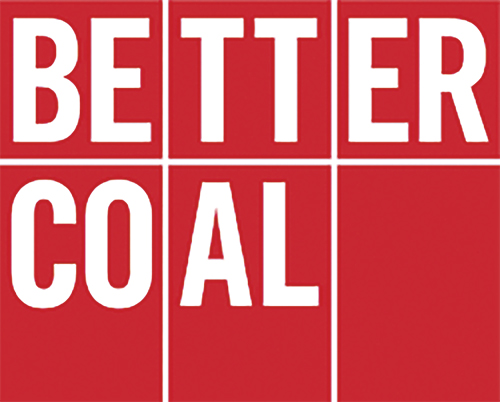
This dichotomy is alive and well within the G7 countries although it would appear that – with the noted exception of Japan – the “battle” against coal for power generation is close to being won. Four out of seven countries are now committed to delivering a domestic coal ‘phase-out’ and are in the process of developing legislative approaches to implementation. In this light, the G7 appear to be the good performers of the G20. A recent report by the Overseas Development Institute (ODI) states that “G20 countries […] account for 79% of global greenhouse gas emissions. In 2009, they committed to phasing out fossil fuel subsidies in the medium term, and since then many have played an important part in driving forward climate action internationally. However, a decade on from this commitment, G20 governments continue to provide billions of dollars of support for the production and consumption of fossil fuels, spending at least $63.9 billion per year on coal alone.” Beyond this, in 2017, global coal demand grew 1% after two years of decline, fuelled by global economic growth which increased both industrial output and electricity use. So, while the Western world heralds the end of coal, the IEA forecasts that demand will remain stable until at least 2023.
gender equality
feature
France has made gender equality a key part of its G7 presidency. The country has set five goals for fighting inequality in general during its turn at the helm of the G7, including fighting against gender inequality, specifically. Further, France has already hosted two meetings of the G7 Gender Equality Advisory Council, which brings together a diverse group of experts and policymakers from across the world devoted to discussing issues of gender inequality. President Macron has encouraged the Gender Equality Advisory Council to help bring these discussions to this summer’s G7 summit.
Gender equality has been a large focus of Macron’s administration in general; in November 2017, the president announced that gender equality was “the great cause of his five-year term.” Macron’s personal efforts to promote gender equality have been received with mixed results. Though half of his party’s candidates were women in France’s June 2017 elections, some feminists felt let down when the young president failed to select a female prime minister.
GENDER EQUALITY
FEATURE

A report from McKinsey’s Global Institute, called The Power of Parity crystalized this. It provides evidence that the best source of future economic prosperity for the world as a whole lies in the economic inclusion of women.


Closing the gender gap at work is a matter of justice—women and girls are the world’s largest marginalised population—but it’s also a smart strategy and an important way for organisations to use the talents and energies of all their people, giving them new strengths and greater resilience, and handing human endeavour at all levels, from governments and big corporations, down to small community groups and families, a competitive advantage over those that don’t deploy the talents of all.
A report from McKinsey’s Global Institute, called The Power of Parity crystalized this. It provides evidence that the best source of future economic prosperity for the world as a whole lies in the economic inclusion of women.
DIRECTFORCE
BRANDED FEATURE

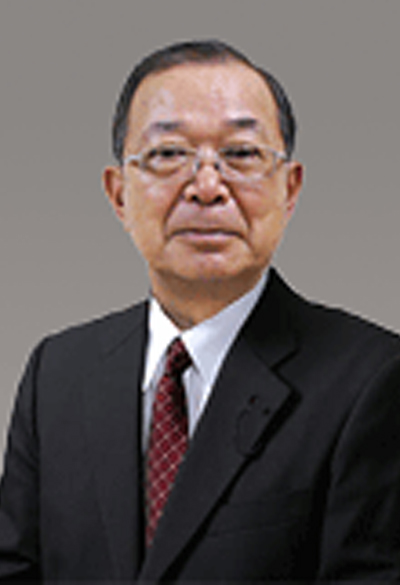
DIRECT FORCE Association (DFA) whose members’ average age is 72. The Association was established in 2002 by retired higher positioned people from various companies and organizations like senior executives of manufacturers, trading companies, banks and lawyers, doctors and all sorts of industry.
It utilizes its members’ knowledges and personal connections for social contribution. The Association is quite unique group of legendary business fighters in Japan. Nearly 1400 people joined DFA from the start and now 650 members are actively engaged in various activities under the motto ‘Challenge for 100-year Life’. The following are main activities:
- 21 Clubs of the same hobbies and sports for enjoying the second life
- Academic Activities (passing knowledges and experiences to young people for their future)
- Visiting Lectures of Science
- Experiments for elementary schools (over 240 times annually)
- Visiting Lectures for high schools
- Lecturers (part-time, temporary) at universities (over 140 lectures)
- Company Tour Arrangements for overseas universities, graduate schools etc.
NET COOP
BRANDED FEATURE


Cooperative Association “NET COOP” was established in 1996 as a union to support SMEs. The Union has been approved by nine ministries, and currently approximately 3,300 SMEs and individual business owners in various industries across Japan are members.
The Union’s features include a low membership fee, improvements in welfare benefits that are difficult for small and medium enterprises to achieve alone, new customer development, and the provision of a place for networking that utilizes the strengths of the different industries. Additionally, the Union provides timely information for major insurance companies that are clients and serves as a bridge connecting us to their major clients. The Union also contributes to support for the sales activities of union members.
By incorporating the support of major companies into business development that cannot be achieved by the Union alone, our Union aims to build a unique union platform that can be realized only through the aggregation of different industries.
Through unions companies connect, people connect, they grow together with union members, and thus they connect to the future. Through our work, we will continue to contribute to society.
TAKESHI ITO, PROFESSOR OF OSAKA UNIVERSITY
BRANDED FEATURE

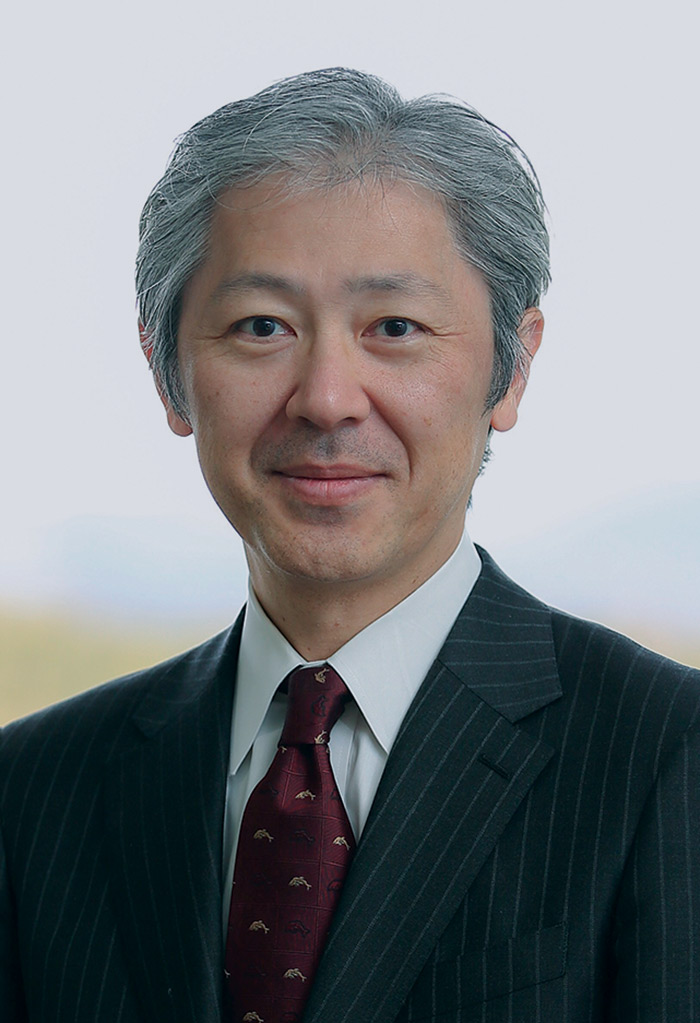
The scope for companies and consumers to fulfill their roles and responsibilities is expanding.
In the past, companies and consumers were only responsible for their own actions, and goods and services have been traded with the “visible value” of the quality and price of their goods and services. Now that society has matured and ICT has developed, “invisible values” such as the working environment in the supply chain have begun to be visualized. Consumers can use products and services with sufficient information on market economy. This means that the consumer has the power to influence the future of the market economy. While this power and authority involve responsibility, the fulfillment of responsibility is a contribution to society. It leads to the happiness of people and society. The ‘sustainable’ movement has begun over 30 years ago. Some companies try to eliminate exploitation in the supply chain and some consumers are doing ethical consumption. However, the movement is still insufficient. We work in companies to make products and services, and at the same time, we consume products and services as consumers. If we, as workers, manufacture products and services that meet the needs of consumers, and if we, consumers, purchase and consume in consideration of the happiness of workers, then we ourselves are ourselves. You will be able to make yourself happy.We, not governments or leaders, can create a good market economy for a sustainable future.
knowledge infrastructures
SPECIAL BRANDED FEATURE

and research institutions worldwide are constantly adding to the stock of knowledge. The information uploaded in the world wide web or shared through social networks is growing exponentially, while smartphones and other connected devices are generating trillions of data ready to be analyzed by ever smarter algorithms. Better knowledge and more information should enable us to solve many of the problems we are facing. The potential for a bright future in the digital age is enormous. However, seen from a liberal and humanitarian perspective, there are also fundamental risks. Connectivity increases interdependence. We concede control over our lives. Our wellbeing is increasingly determined by decisions made by others. This loss of control is further aggravated by our growing ignorance. Our cognitive abilities have long since been unable to keep pace with the growth of knowledge and information. We know less and less about the world we live in—a truth we tend to ignore, because it can be frightening.
How can humankind exploit the potential created by the growth of knowledge and information, while containing the ensuing risks? This is not only a question of governance. People with the best of intentions make mistakes. Legislators for example have to decide about financial system stability, energy reform, genetically modified food or self-learning algorithms. They normally have no special education in the respective field. They cannot but rely on experts. However, experts seldom agree, and advice is often mingled with vested interests. We cannot be sure that decision makers get the best advice possible. However, we can try to increase the likelihood of adequate information. A key factor is decision makers’ access to knowledge infrastructures.
RENEWABLE Energy
SPECIAL BRANDED FEATURE


opportunities are growing as the industrial experience has brought down the costs of electricity from renewables. In the 20th century, resource depletion and greenhouse gas emissions appeared to set energy constraints on global human development. Today, the dramatic reduction of costs has made renewable electricity generation as the lowest cost source of new electricity in most parts of the world, in a growing number of places without subsidies.
Still, we may fail to utilize these opportunities at sufficient speed to avoid the risks of unmanageable rate of climate change. In order to succeed a combination of intelligent and determined political and industrial leadership is desired.
Opportunities are illustrated by the rapid development of solar and wind electricity in the United States, and even larger capacity installations in China. The economic competitiveness developments are also visible in Europe were in 2017, the first commitments by large power producing companies to deliver electricity from off-shore wind without subsidies off the German and later Dutch North-sea coast-lines. This achievement was possible after years of developments involving subsidies from governments, and development efforts by suppliers of power plants.
Technology and Society
SPECIAL BRANDED FEATURE

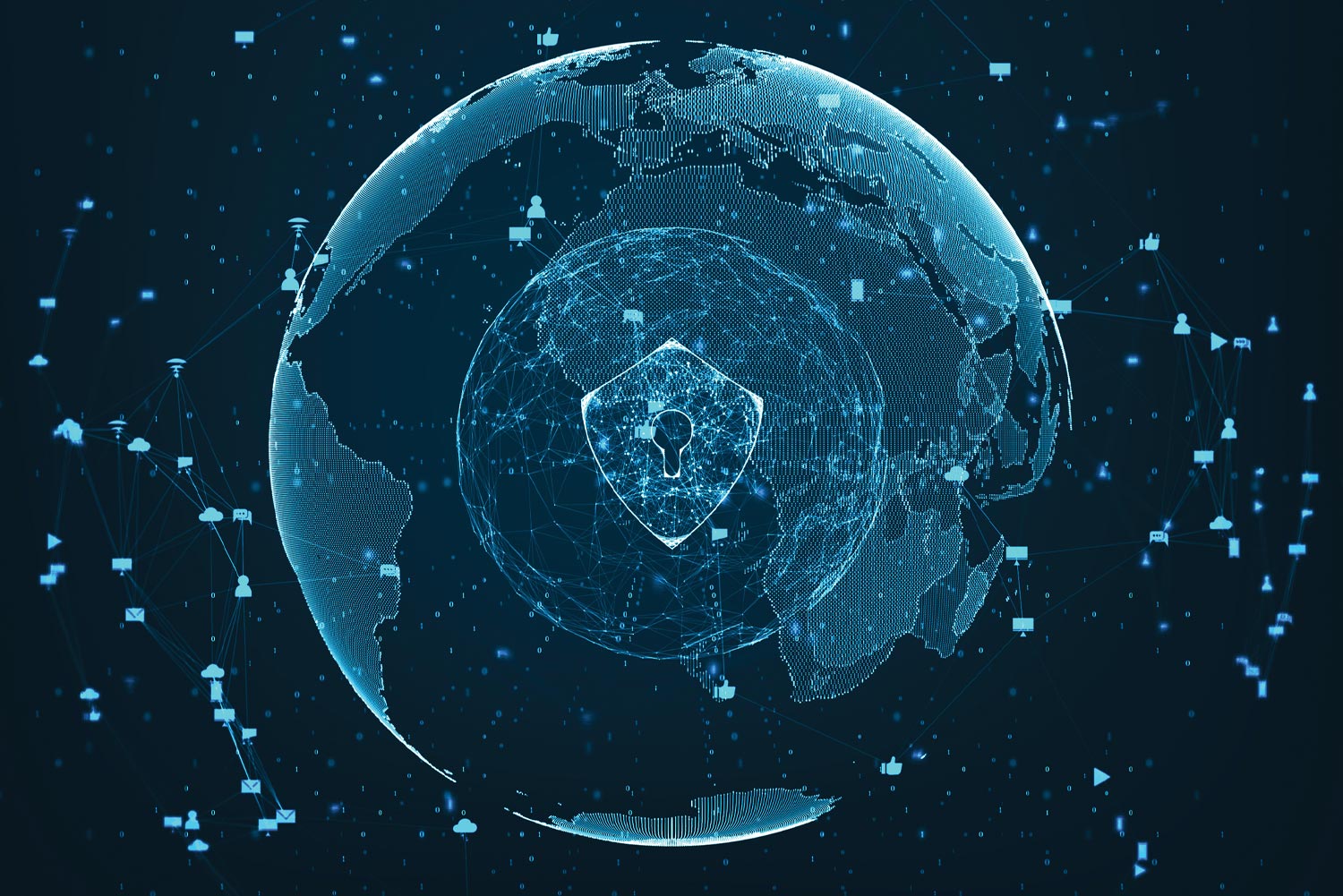
research institutes and think tanks already contribute to the fields of foreign policy, economic policy or environmental policy in Germany. Issues related to new technologies, however, lack comparable expert organizations. The Berlin based Stiftung Neue Verantwortung (SNV) fills this gap in the landscape of German institutes and think tanks. Our work ranges from cybersecurity and cyber-diplomacy to questions regarding the impact of technologies on the future of work. We study the challenges associated with a data-driven economy, examine the tension between digital rights and national security, and develop new ideas how digital technologies can foster the transition to green energy. And we investigate how artificial intelligence has emerged as a key technology that poses new challenges for international cooperation and competition.
The field of technology does not only need new think tanks with specialized expertise but also a new model for think tanks. We live in an era of rapid technological change. The Internet and digital technologies challenge governments around the globe in fundamental ways. Today new digital products and services can be rolled out instantly to billions of users around the globe. Whether it is the emergence of crypto-currencies, digital disinformation or new cybersecurity risks, governments are struggling to quickly grasp the implications of new technologies in order to harness its opportunities and address the risks.
Global Education
SPECIAL BRANDED FEATURE
Uniting the World Through Education

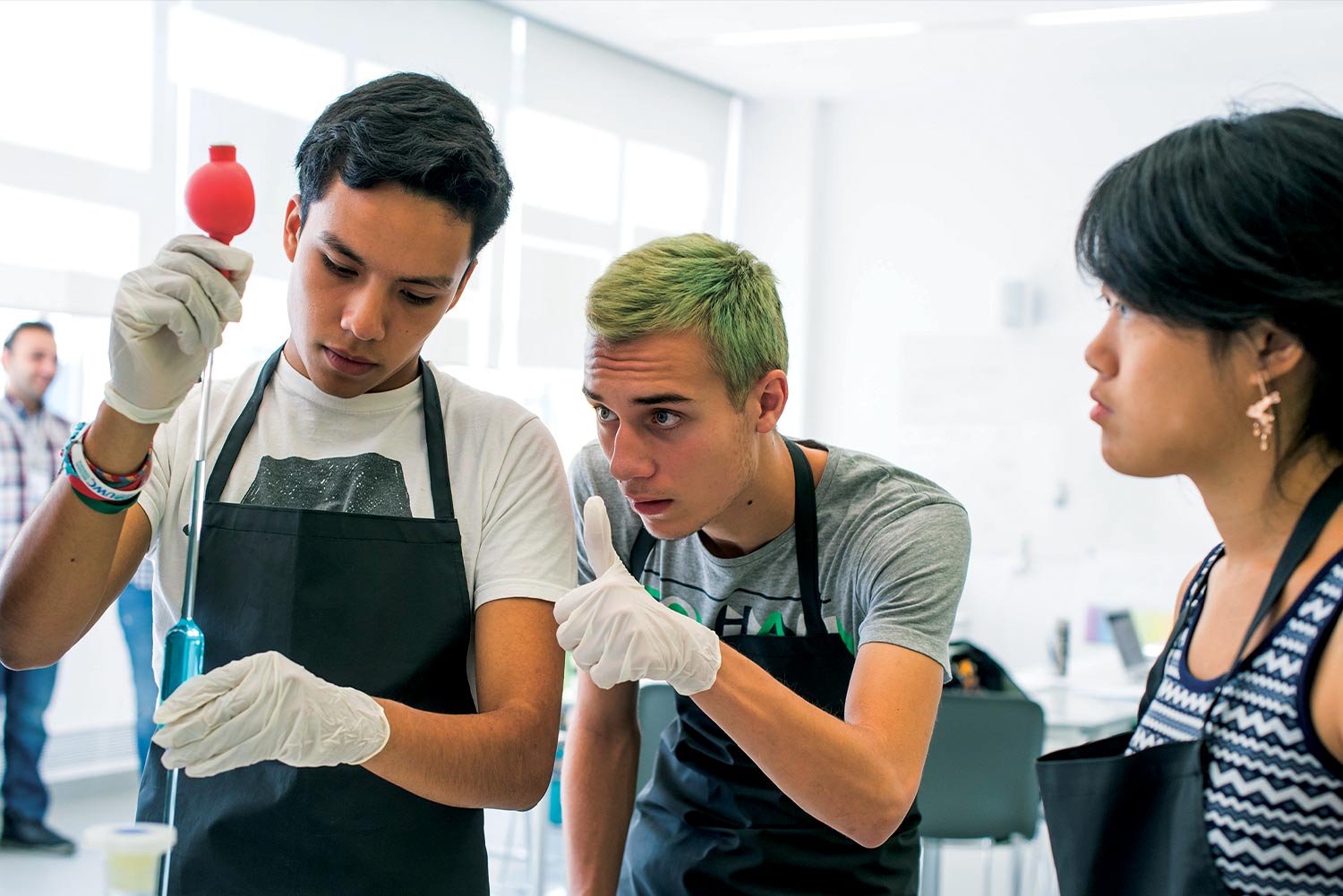
Our rapidly
changing world needs a new kind of leadership. Globally-minded, ethical, strong leadership. Leadership that harnesses the power of diversity and thrives in complexity. Leadership that speaks to and includes the younger generation. Leadership as compassionate as it is courageous. This is what we foster at UWC.
UWC (United World Colleges) is a global movement with the mission to unite people, nations and cultures for peace and a sustainable future. We recognise that our goal – a more peaceful, just and sustainable world – is an aspirational one. But since our founding in 1962 we have had a transformative impact on 60,000 UWC graduates from 160 countries simply by deploying what our late Honorary President Nelson Mandela called the most powerful weapon to change the world: education.
There are 18 UWC schools and colleges and dozens of UWC short educational programmes worldwide. Each serves as an incubator for the next generation of global leadership. Many of our alumni lead in their respective fields: science and technology (there are two UWC astronauts), business (from CEOs of Fortune 500 companies to some of the most innovative start-up founders) and politics (currently, Canada’s Chrystia Freeland and Sierra Leone’s David Sengeh are among our graduates).

